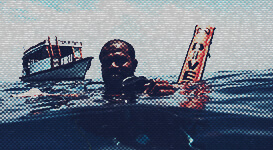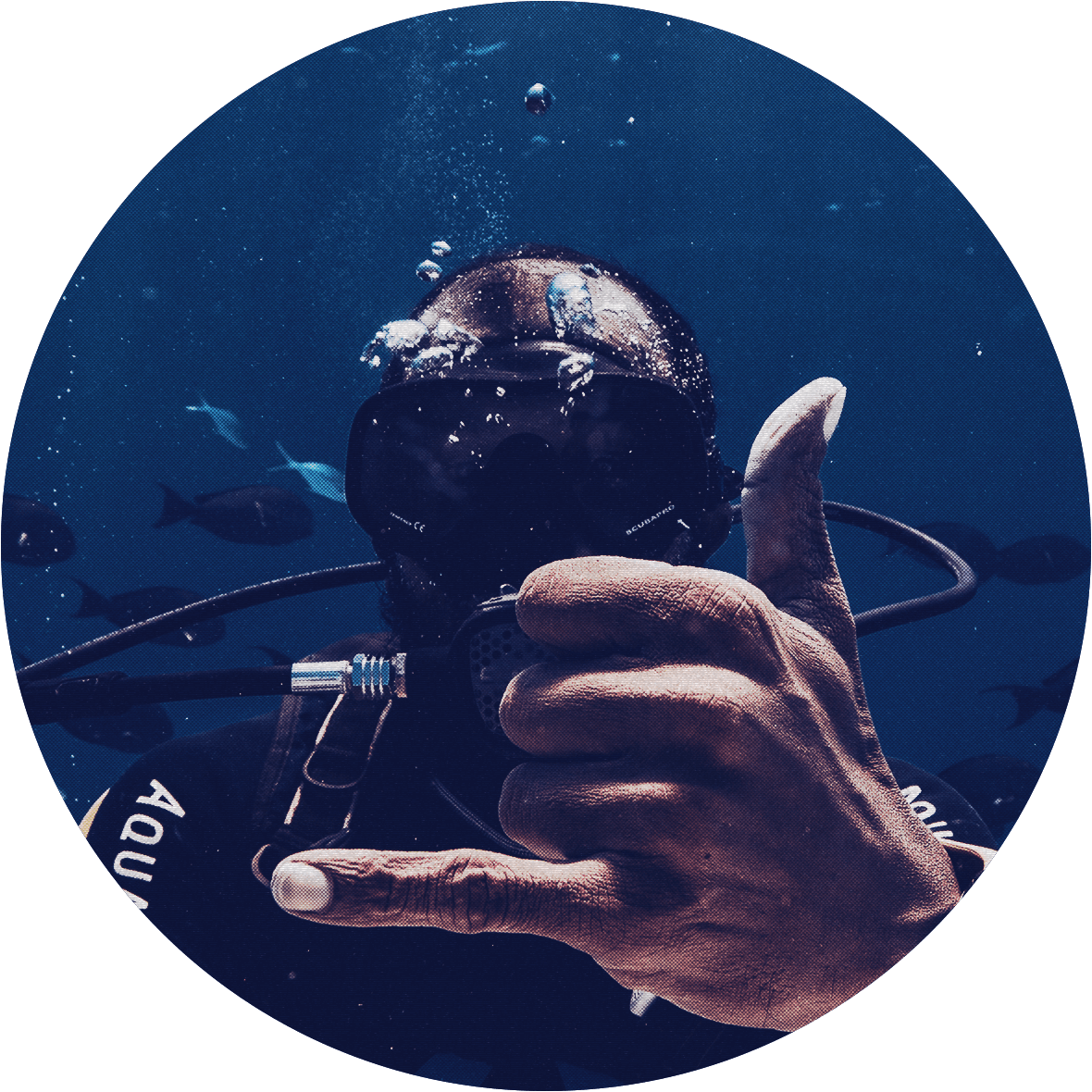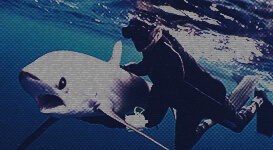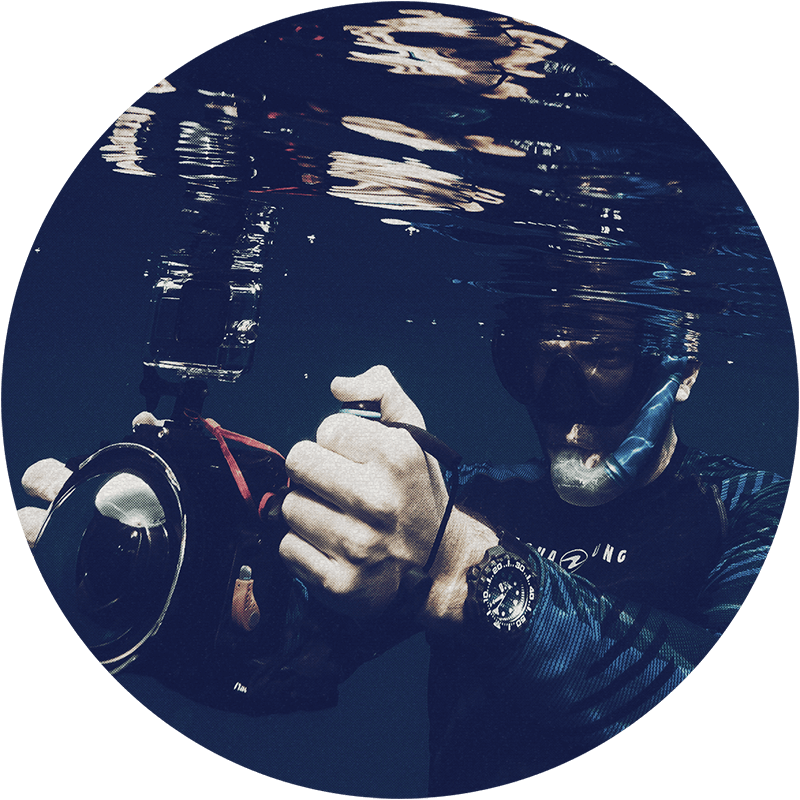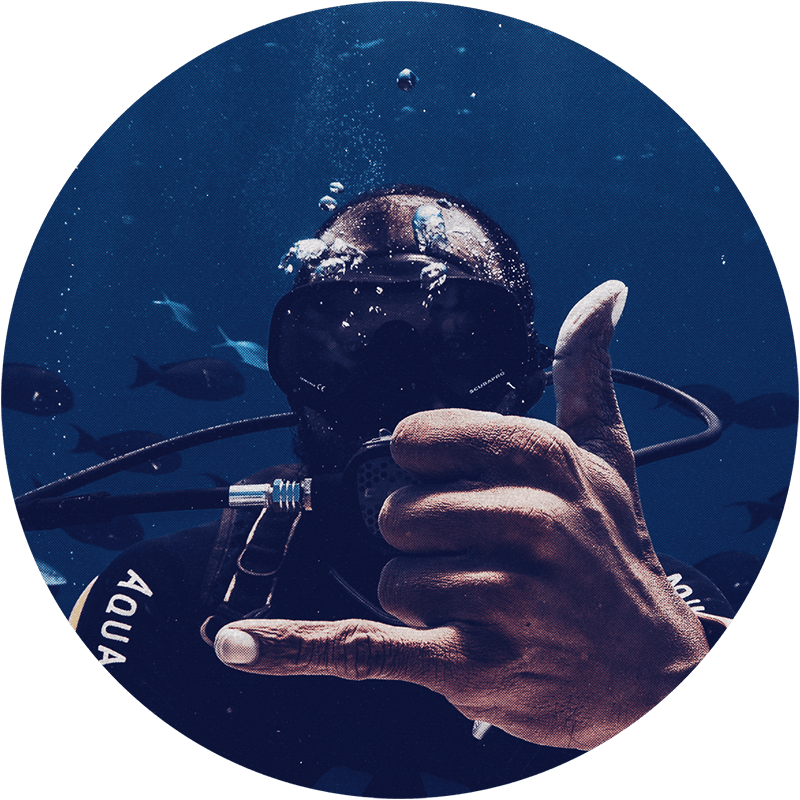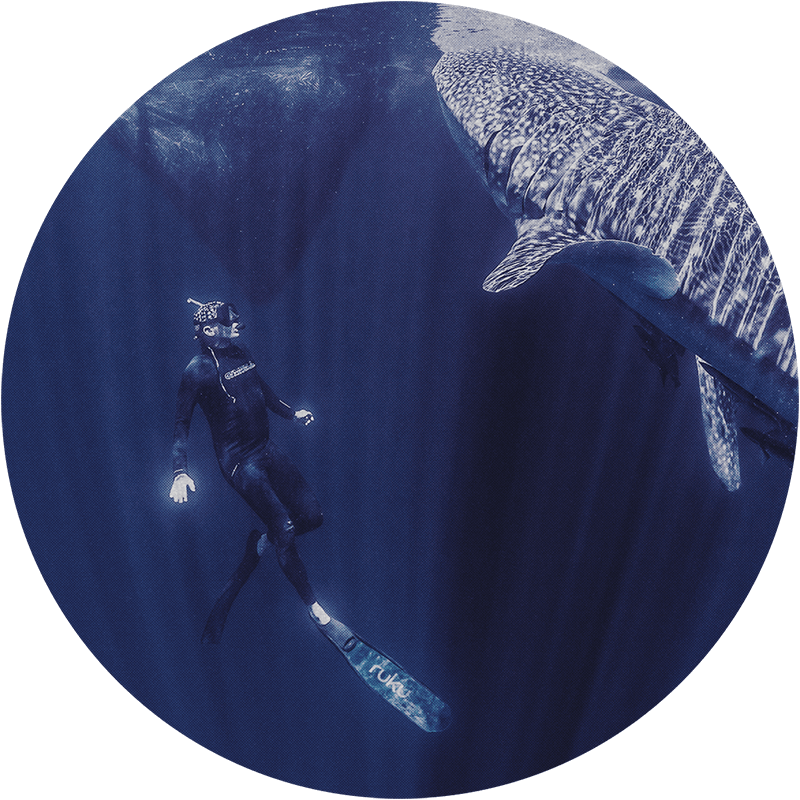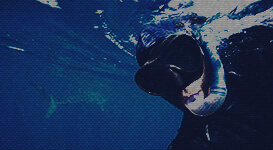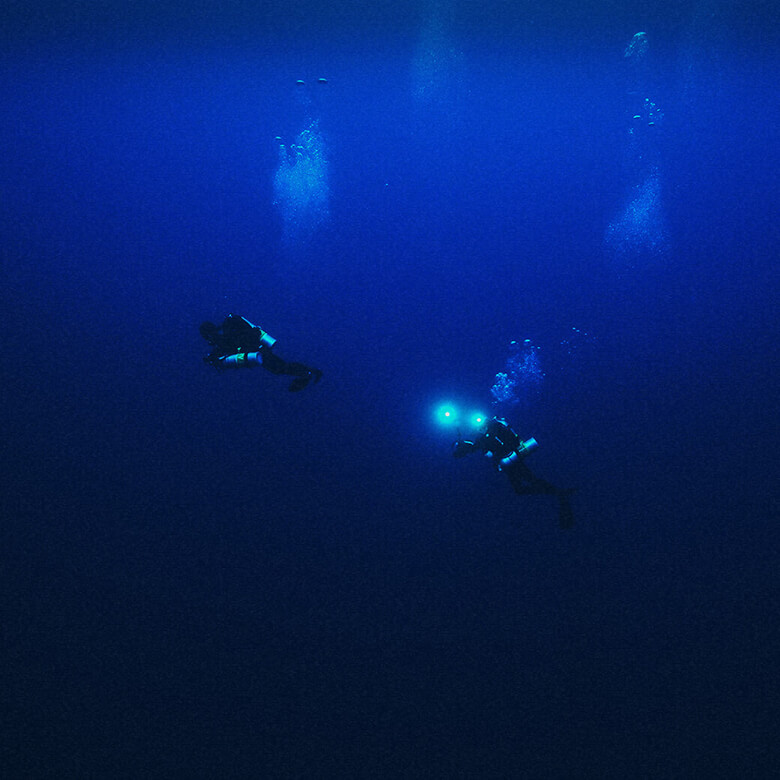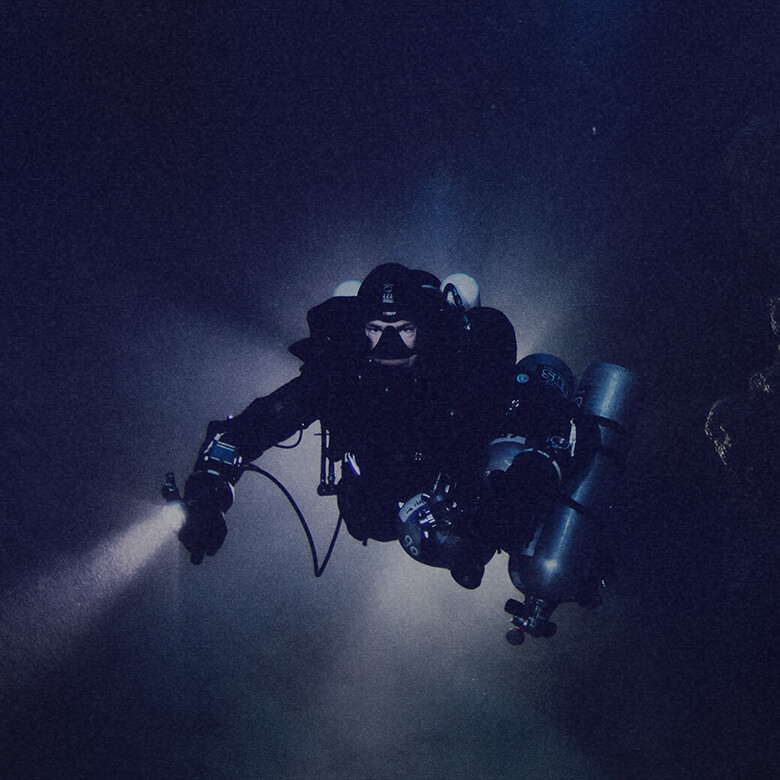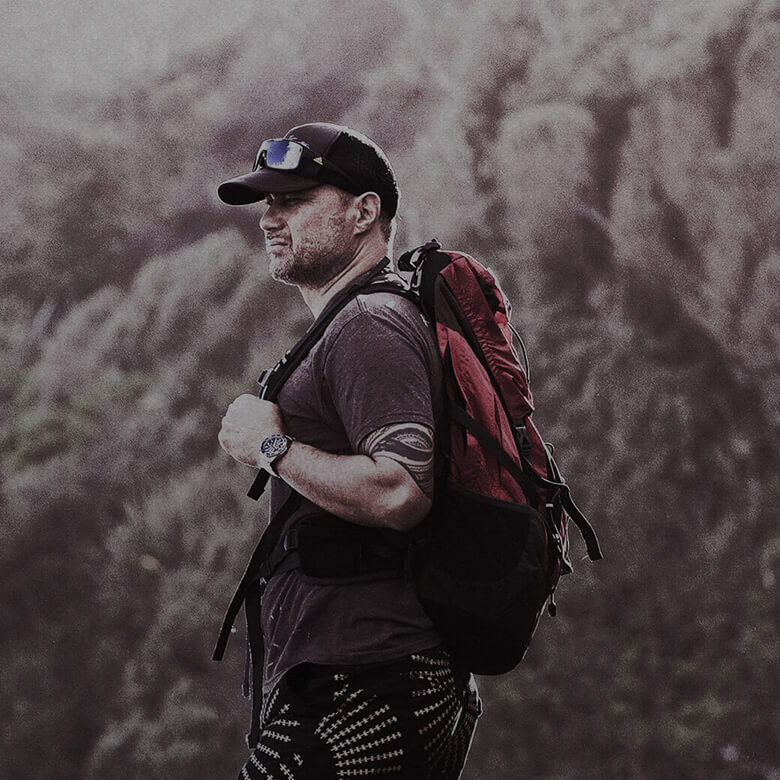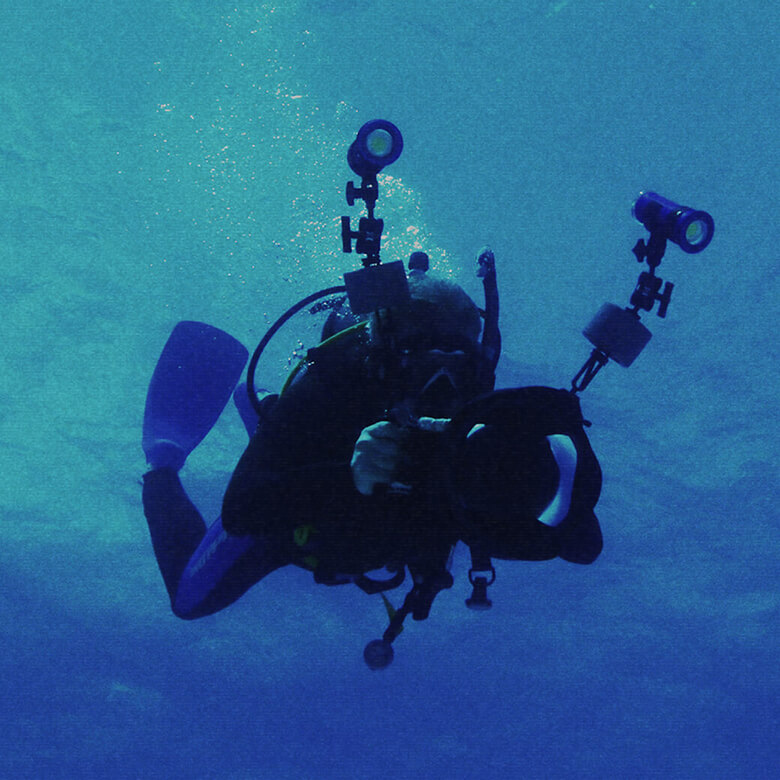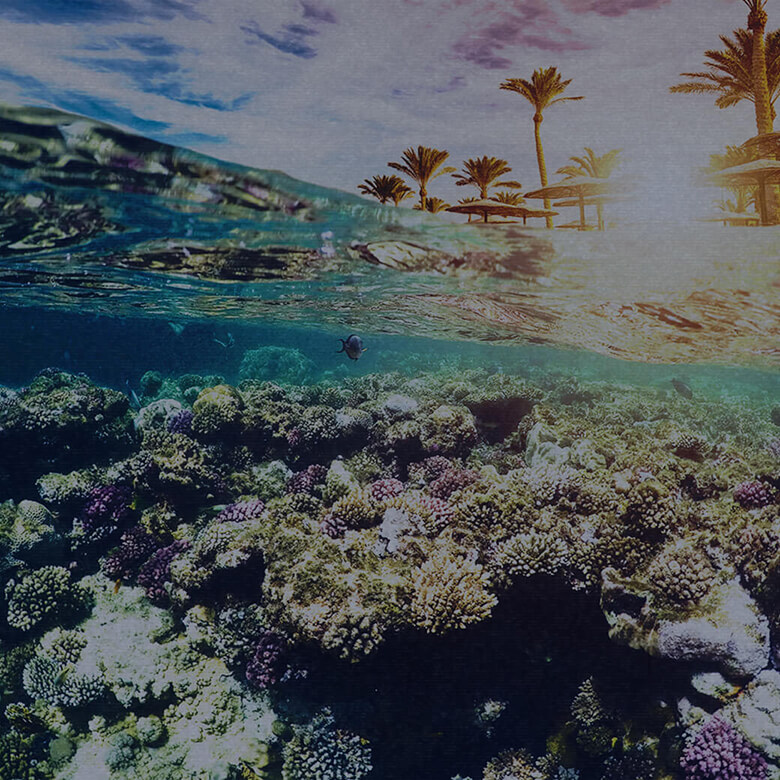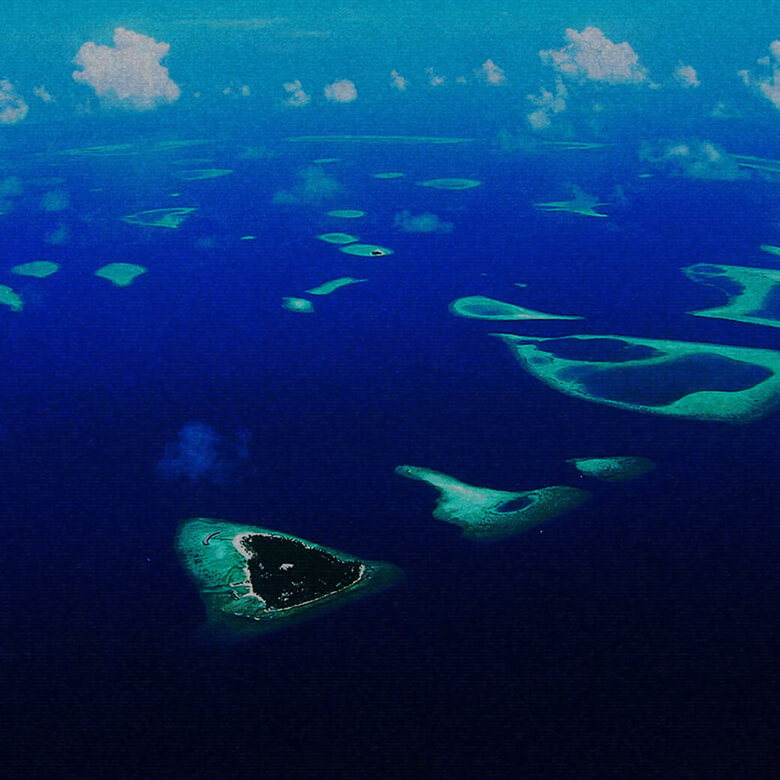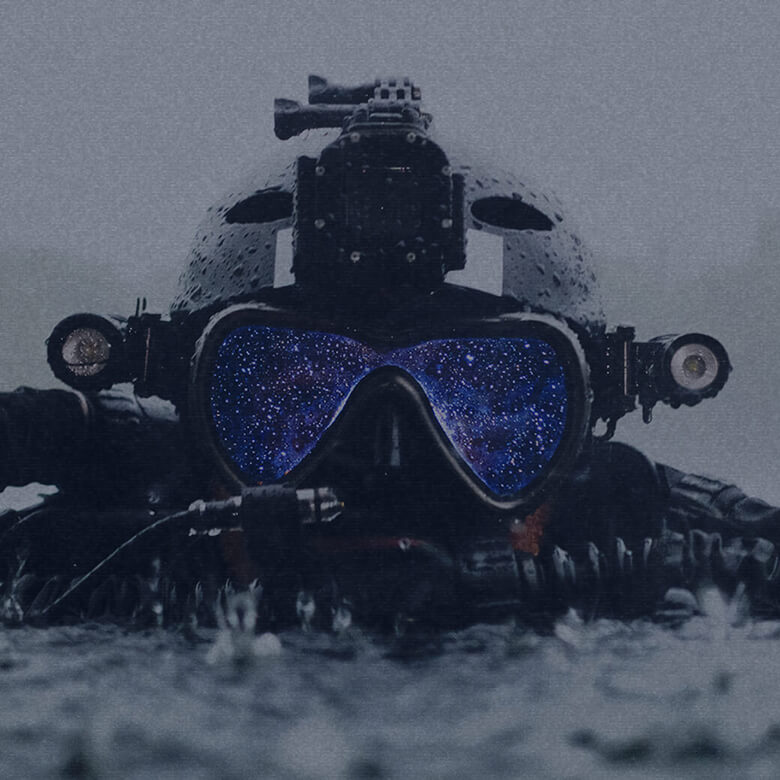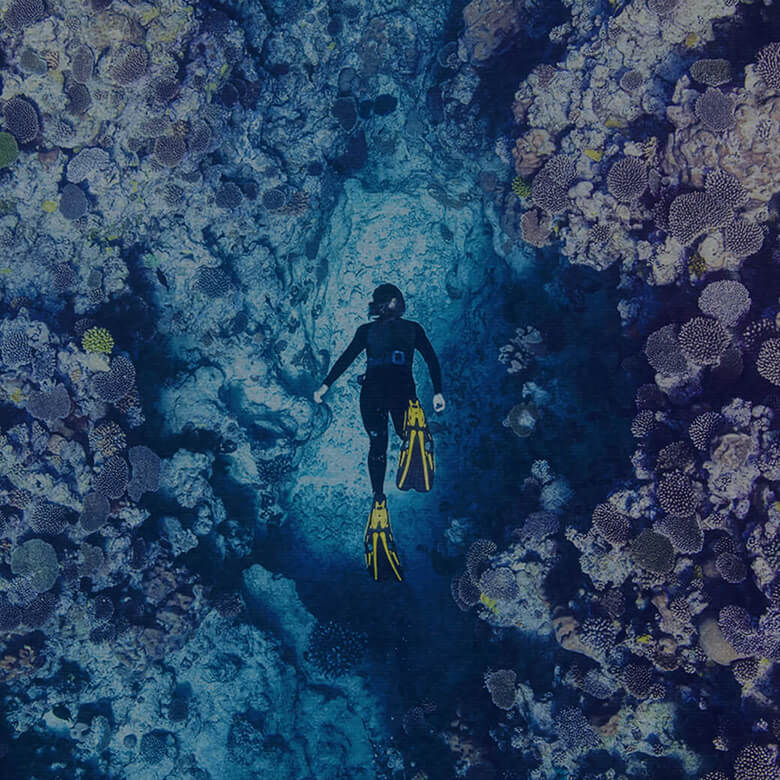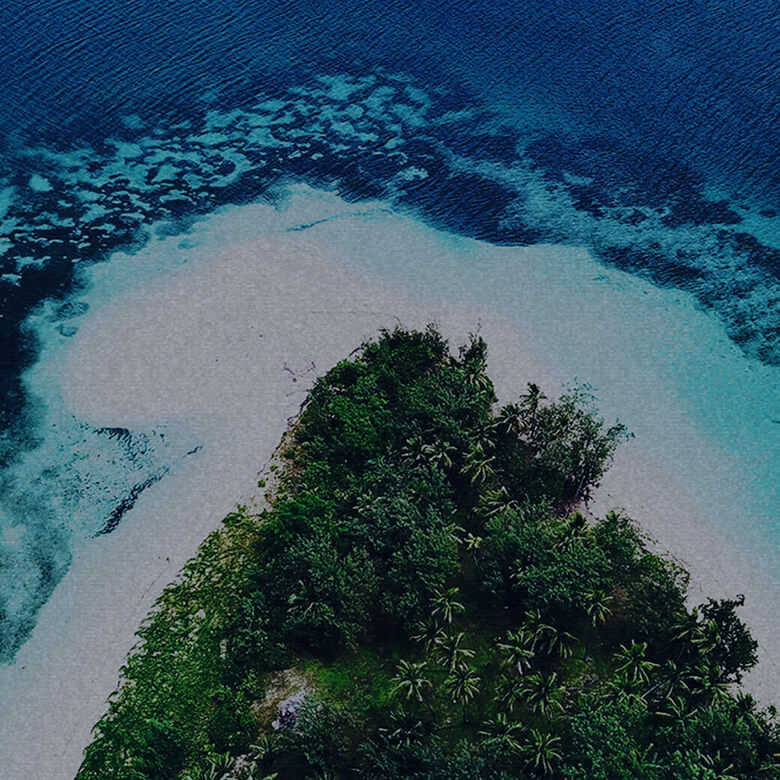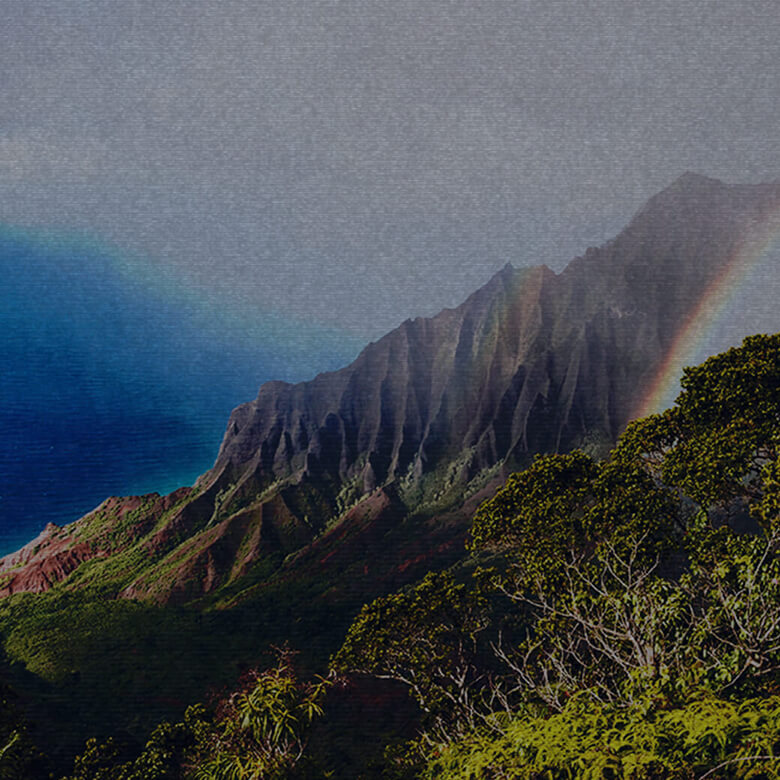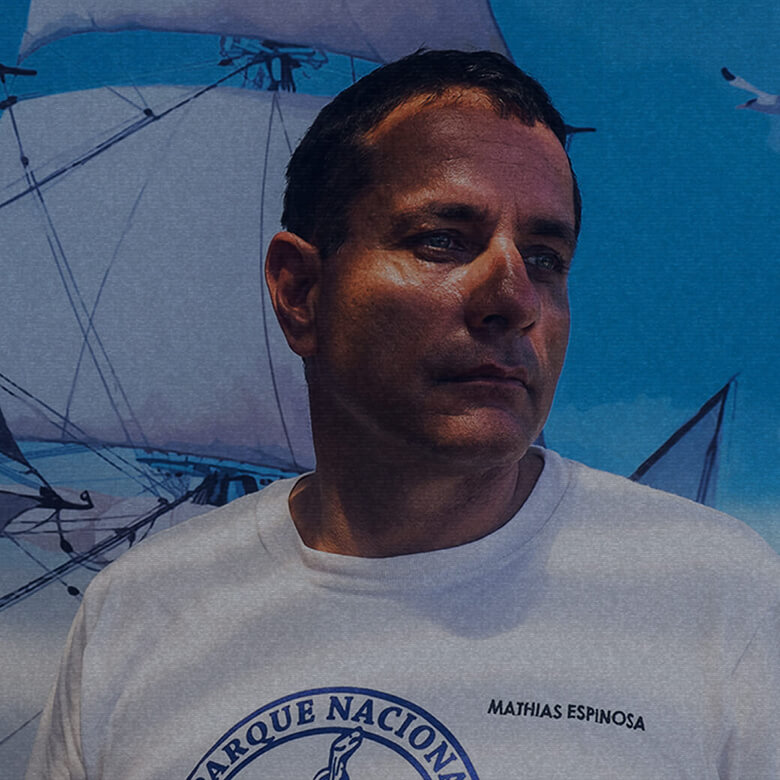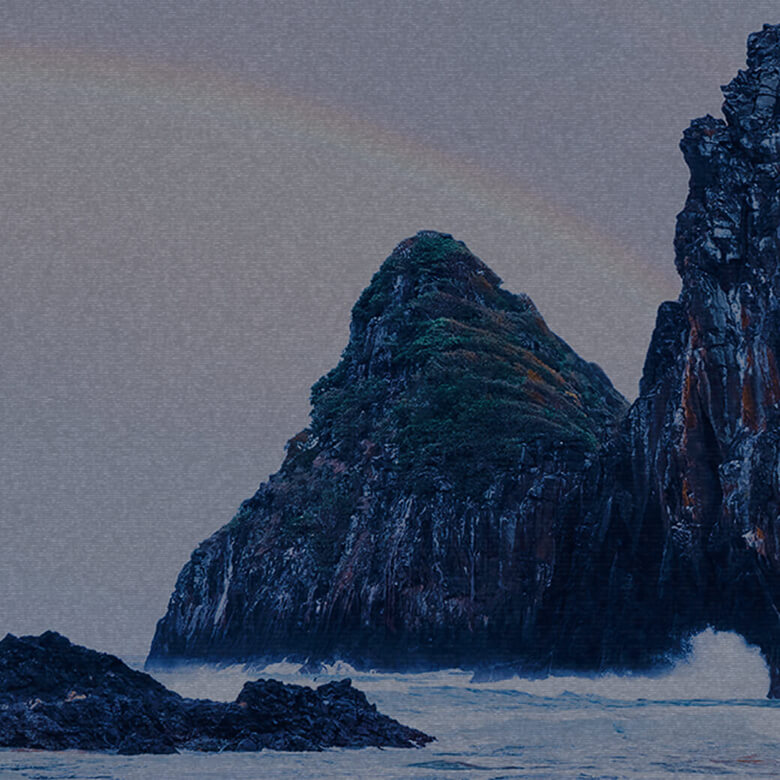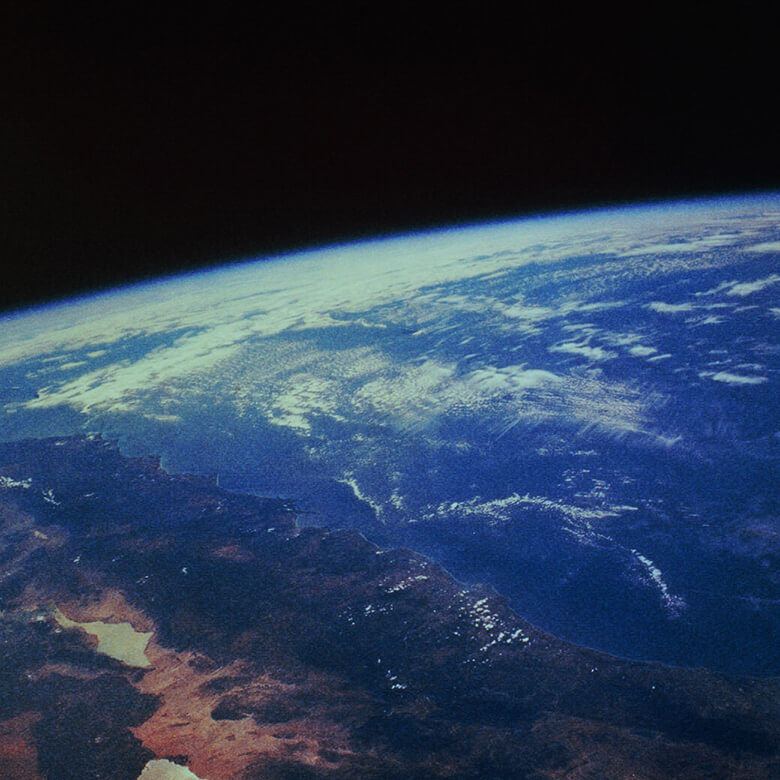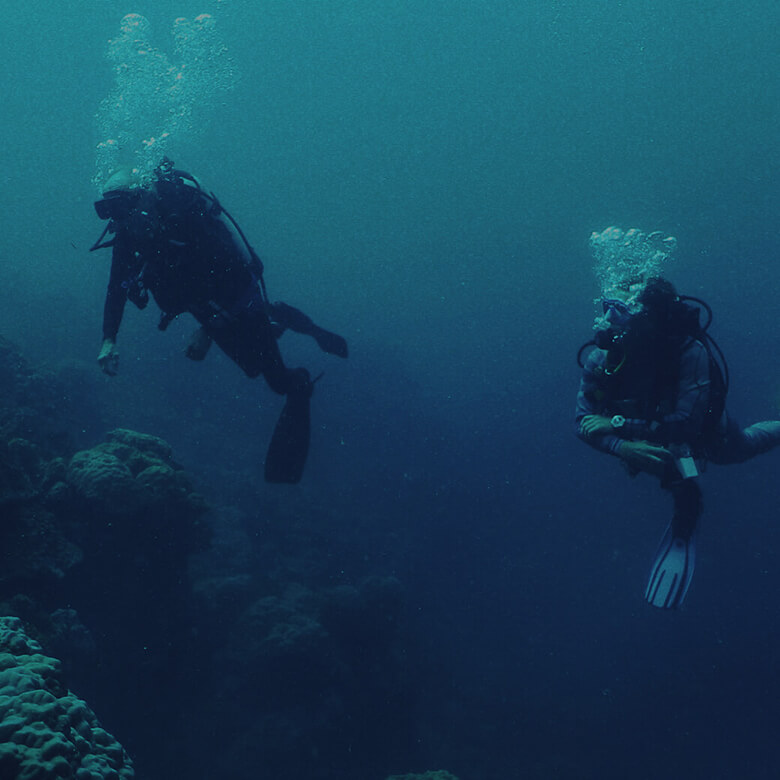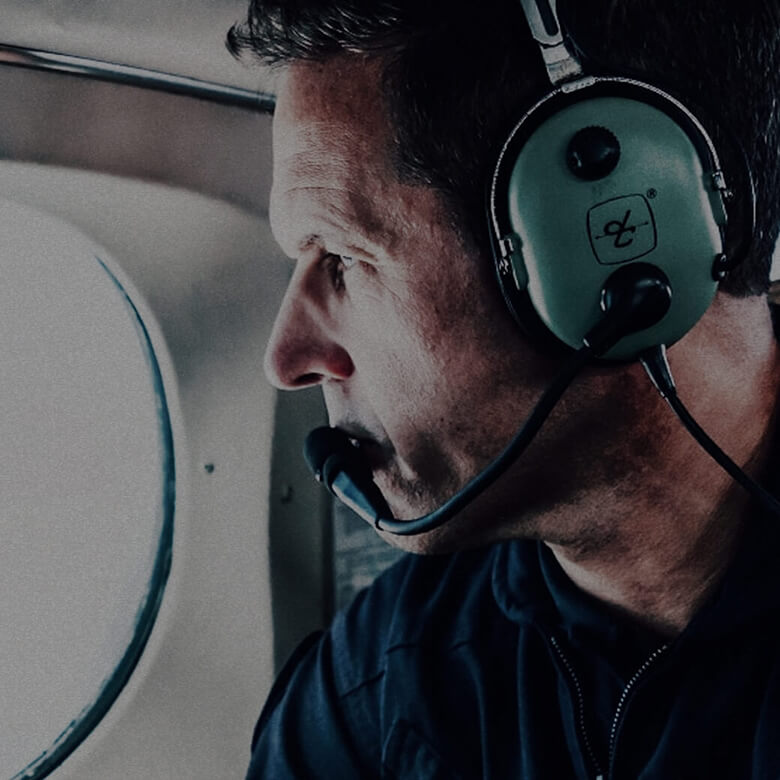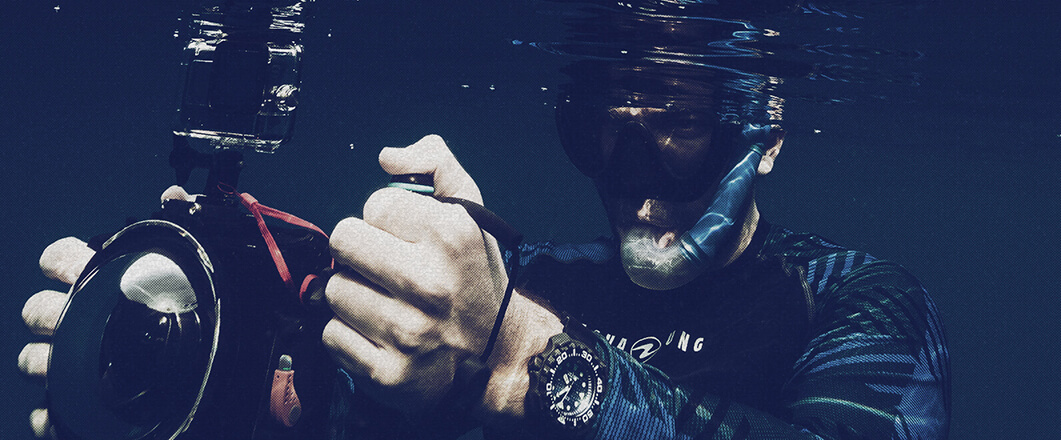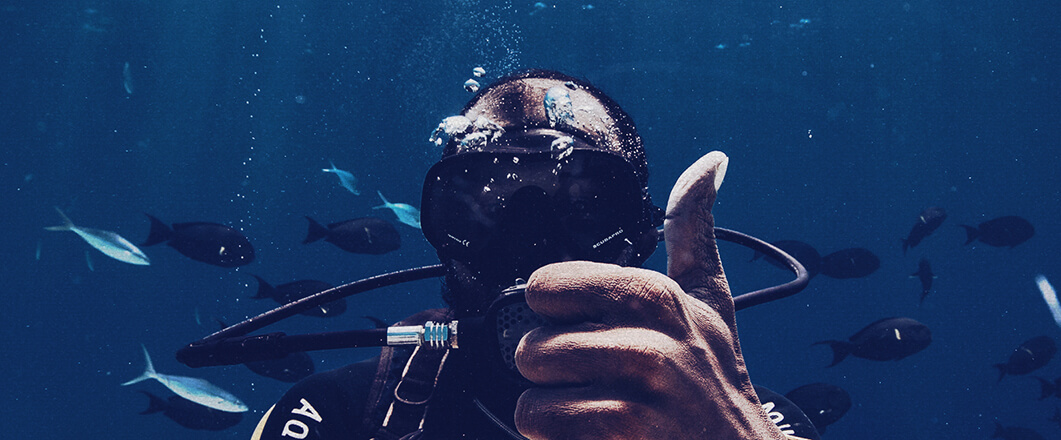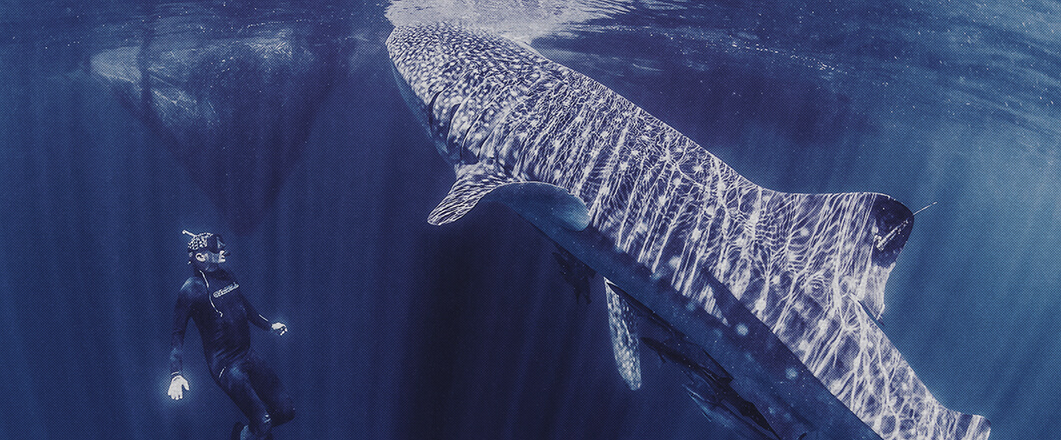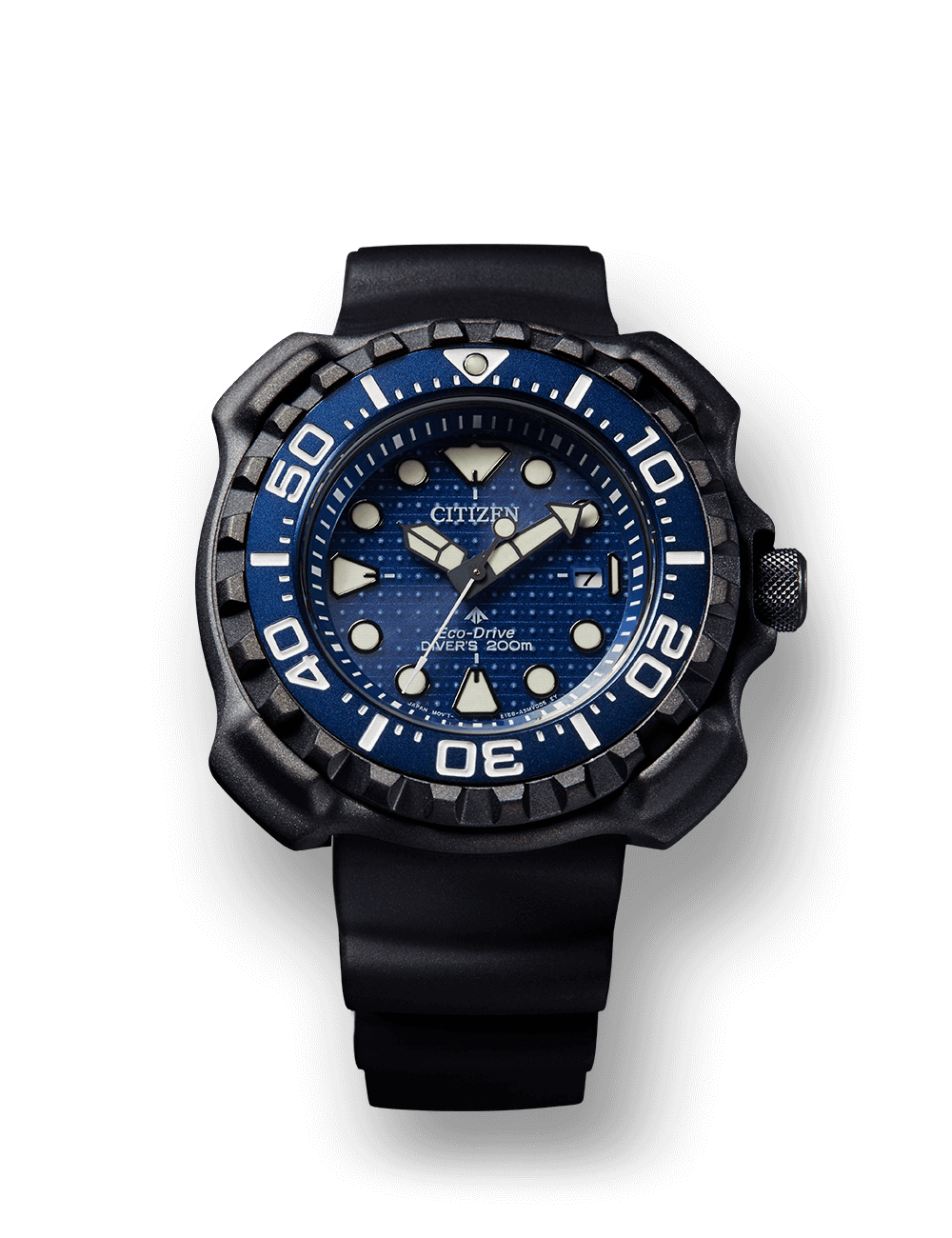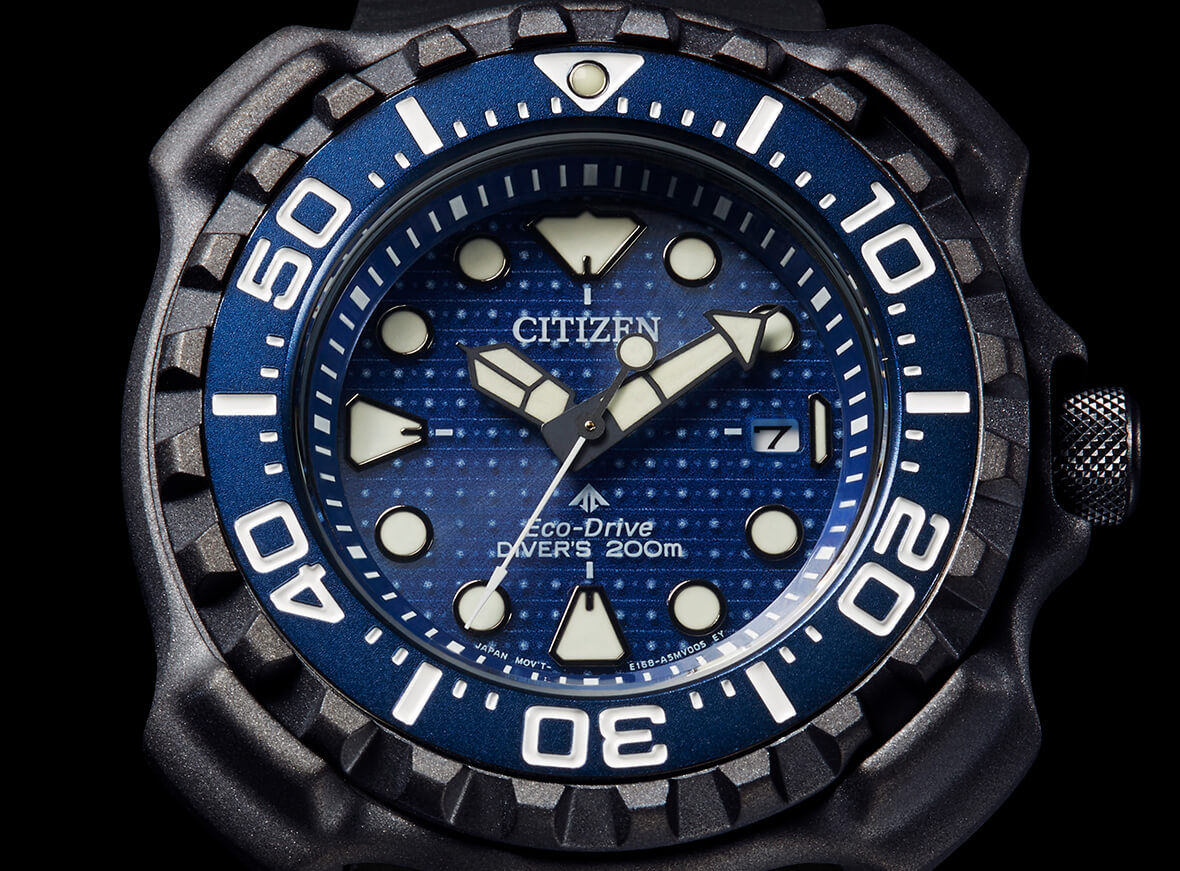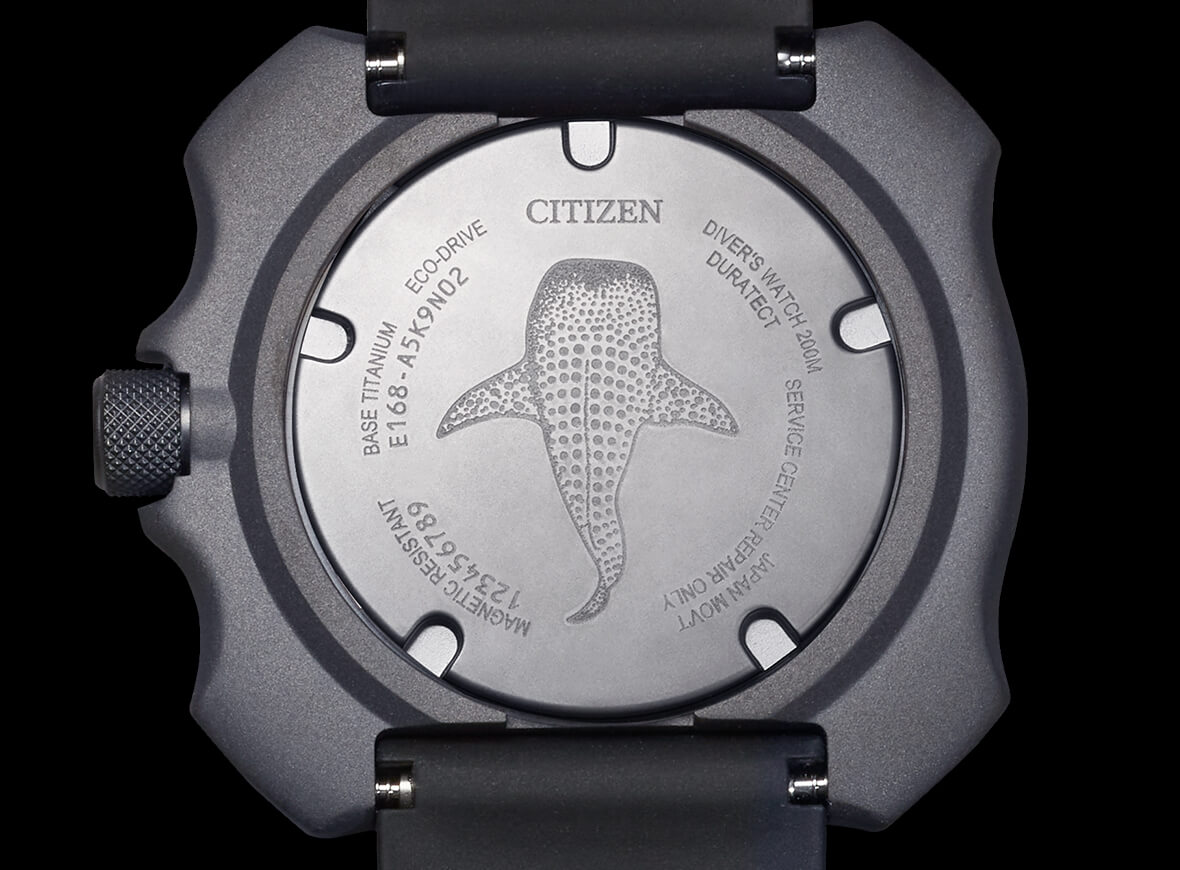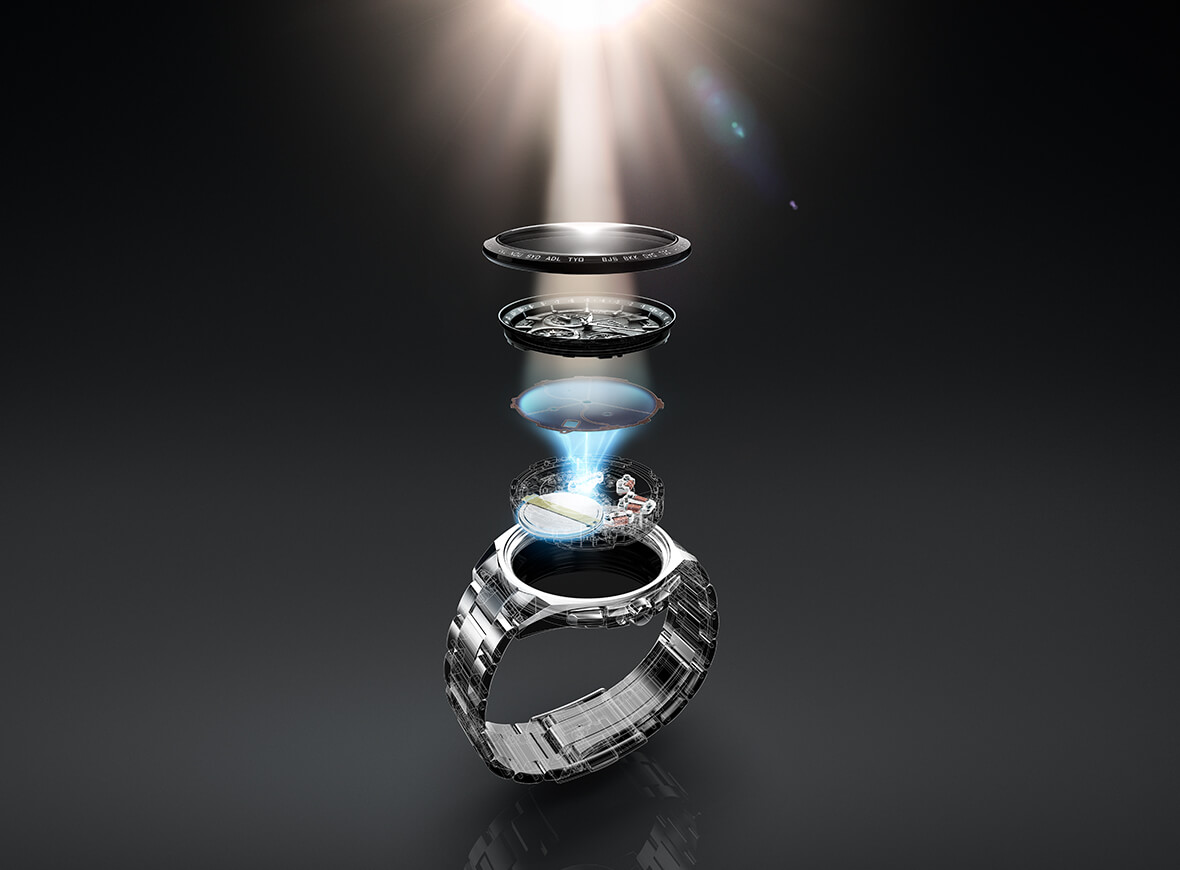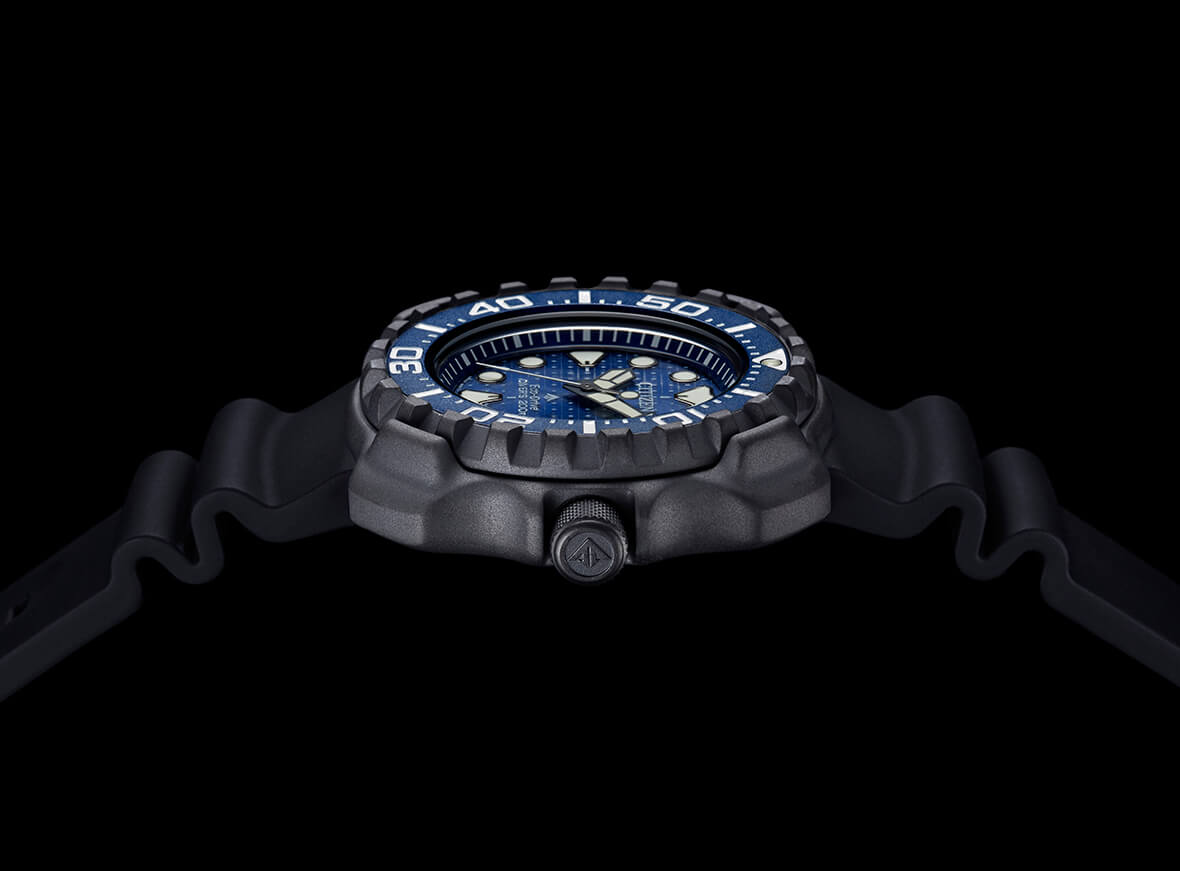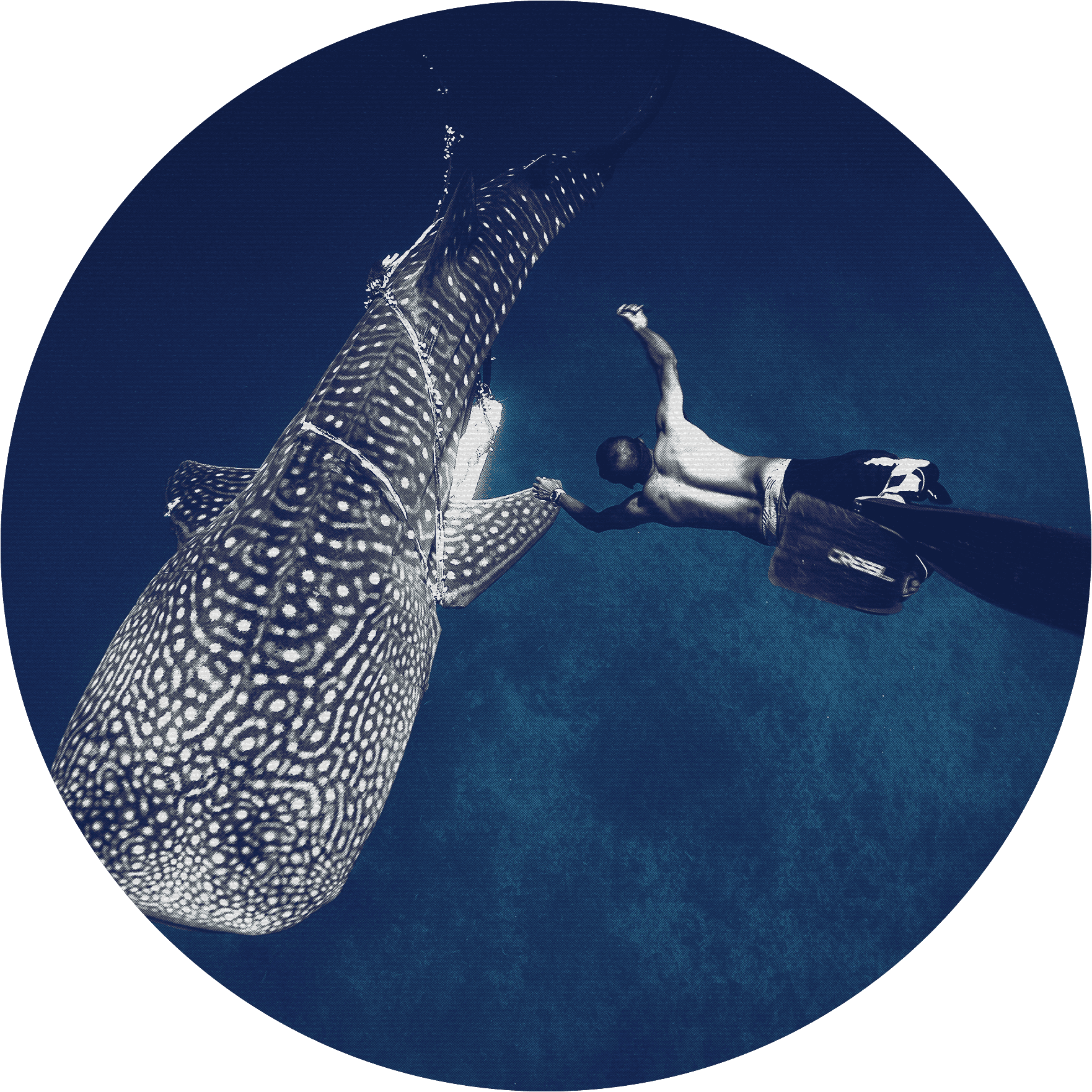
INTRODUCTION
AHMED NASHEED “LONU”
DIRECTOR SHARK ISLAND DIVE CO-FOUNDER FMFMaldives-born Ahmed ‘Lonu’ Nasheed
grew up loving, not fearing, sharks. He
had already made shark diving into his
career when a memorable encounter with a
troubled whale shark turned him into an
activist.
Maldives-born Ahmed ‘Lonu’
Nasheed grew up loving, not
fearing, sharks. He had already
made shark diving into his career
when a memorable encounter with
a troubled whale shark turned him
into an activist.
SYMBOL OF THE SEAS
02
“THE SHARK WAS ENTANGLED WITH THICK, INDUSTRIAL-GRADE PLASTIC ROPE.” “THE SHARK WAS ENTANGLED WITH THICK, INDUSTRIAL-GRADE PLASTIC ROPE.”
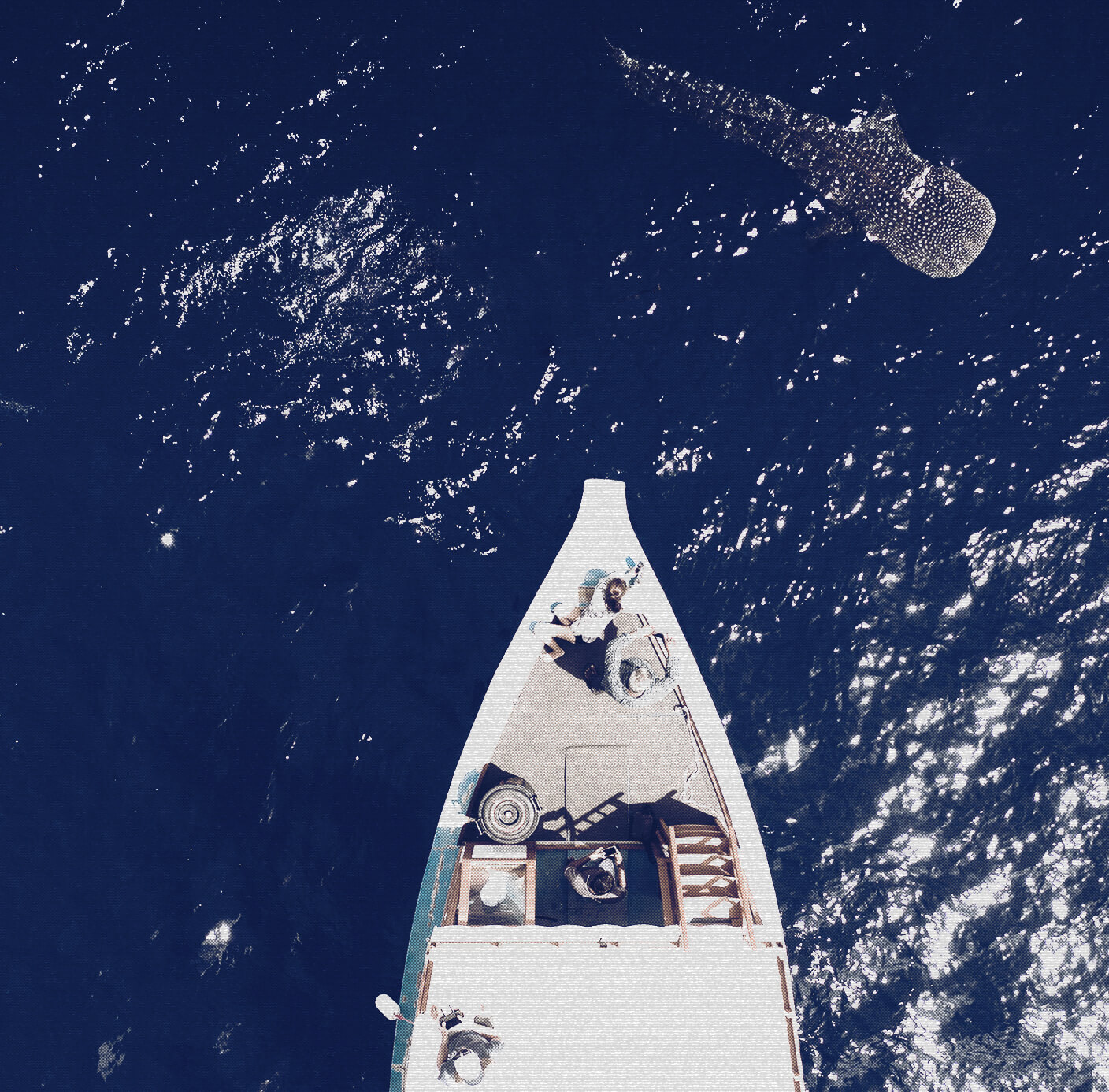
How I saved a whale shark from marine waste
We were out on a boat and suddenly the captain yelled “whale shark!” The shark was right up next to the boat. We jumped in, and as soon as we got into the water, we could tell something was wrong: the shark was entangled with thick, industrial-grade plastic rope.
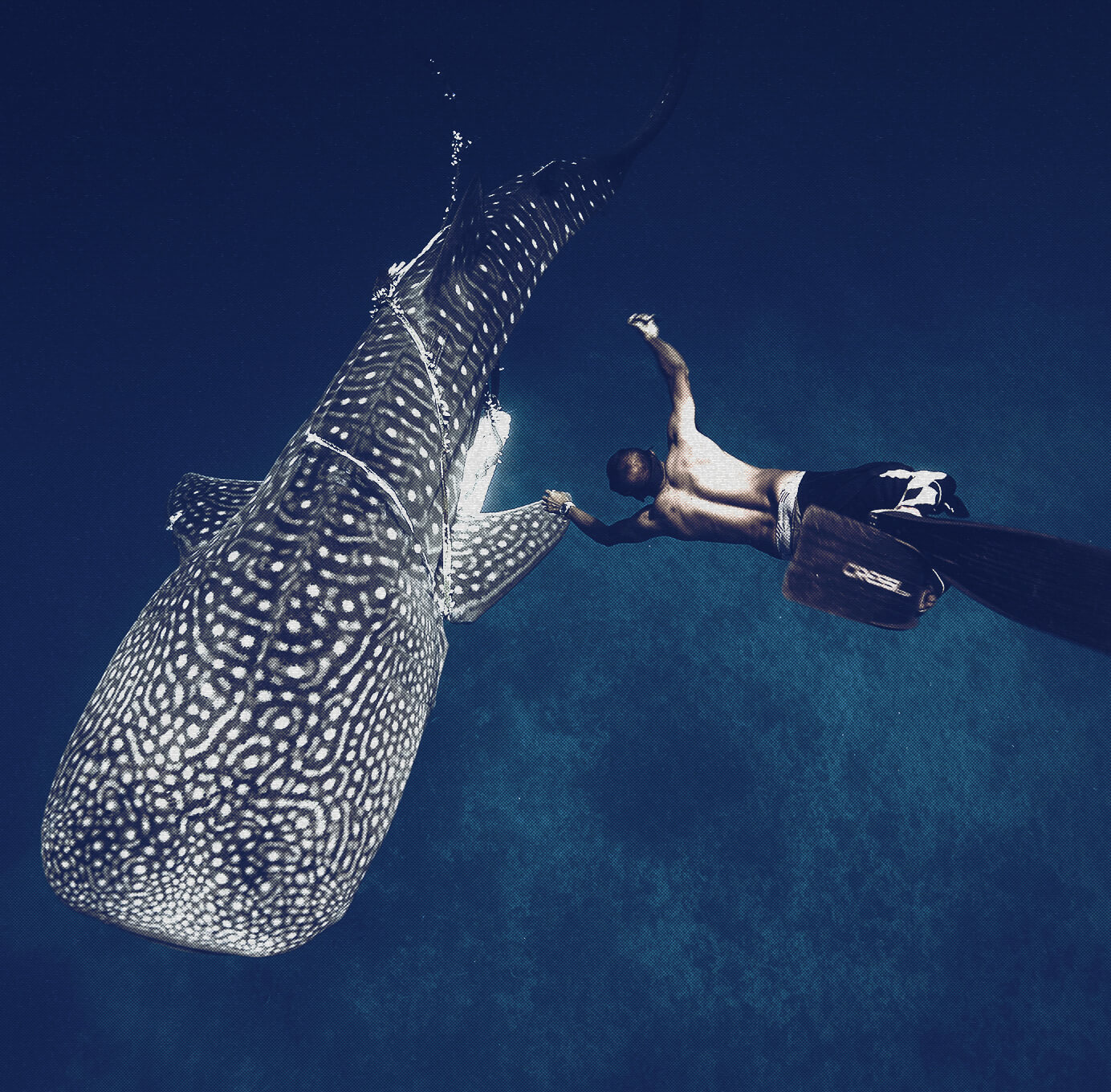
I rushed back onto the boat to get a knife while Jono, my Australian photographer friend, stayed with the shark. As I swam back, the shark turned around and came towards me, as if asking for my help. I freedived down and began cutting the rope. My lungs were burning, I thought to myself, ‘I can’t do this, I have to go up to breathe,’ but then I said 'No, whatever happens, I’ve got to finish this and cut this shark free.’
“PEOPLE HAVE NOW SEEN WHAT IMPACT OUR ACTIONS HAVE ON MARINE LIFE.”
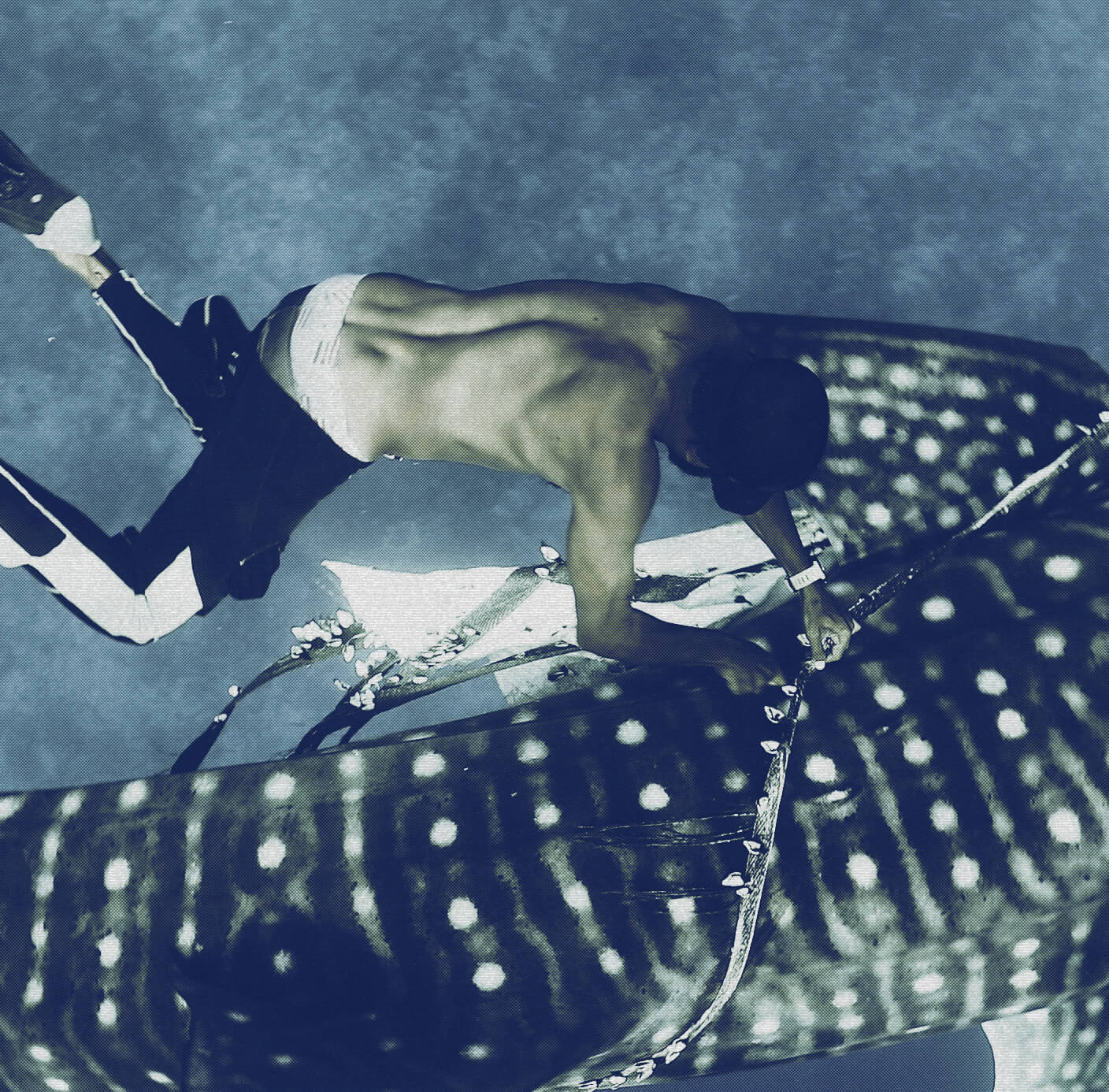
Our shark-rescue video goes viral
Jono filming me cutting the shark free was important. People have now seen what impact our actions have on marine life, if even the mighty whale shark is suffering from our plastic! The video has been shared and viewed millions of times. It gives me hope that so many people have had such a strong emotional response to it.
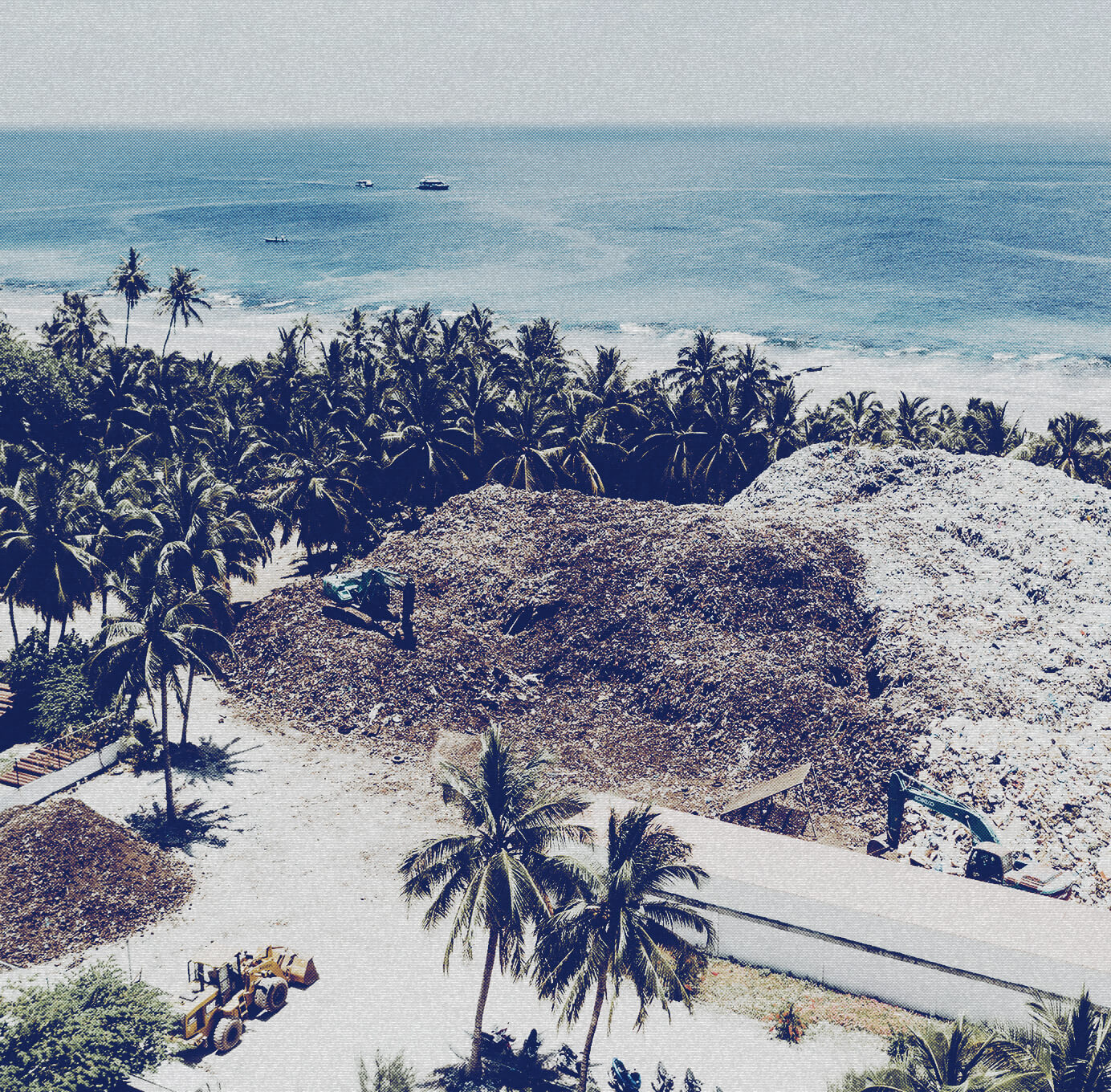
I hope now people will be more careful and thoughtful about the health of our oceans. Most of the plastic in the ocean is made out of fishing nets, and most of the damage done to our oceans is caused by taking too much marine life out of the water.
“I’VE ALWAYS LOVED SHARKS. I NEVER FEARED SHARKS.” “I’VE ALWAYS LOVED SHARKS. I NEVER FEARED SHARKS.”
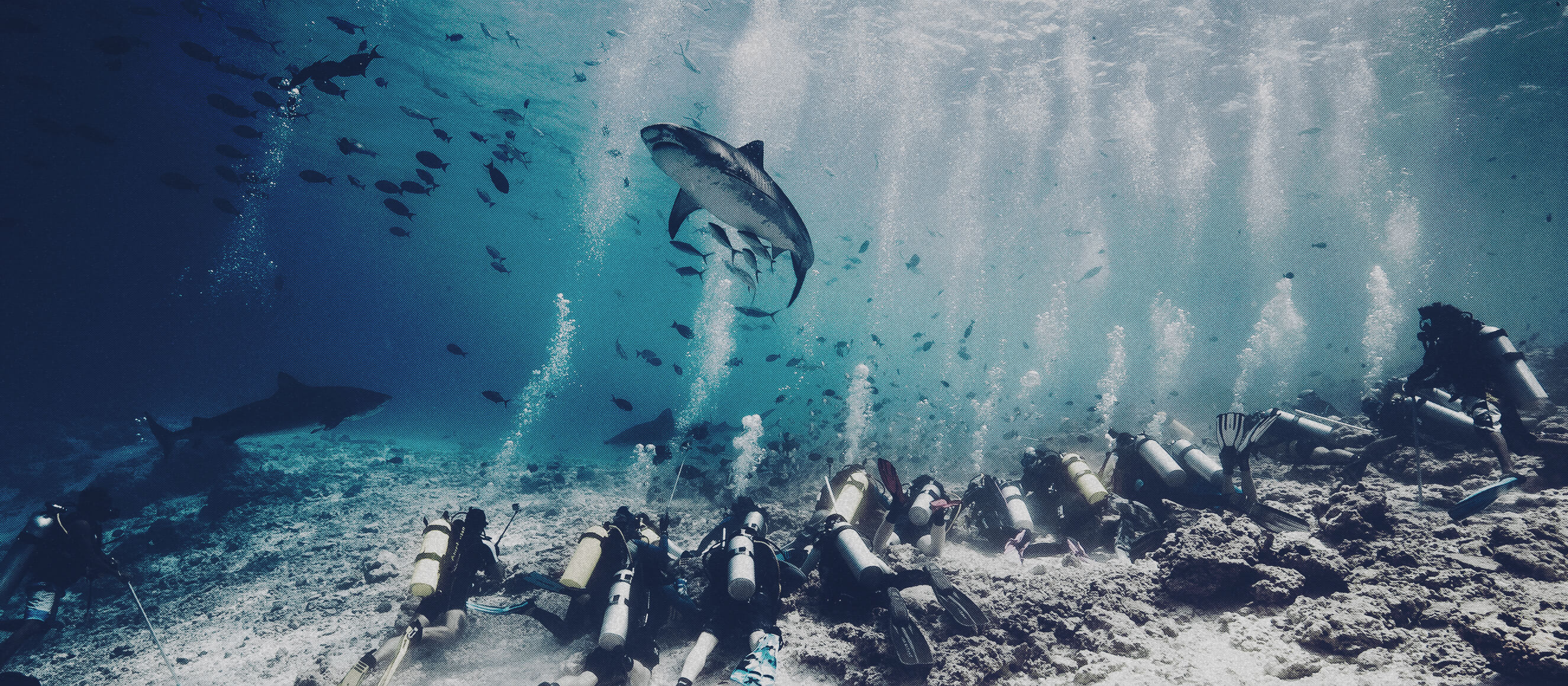
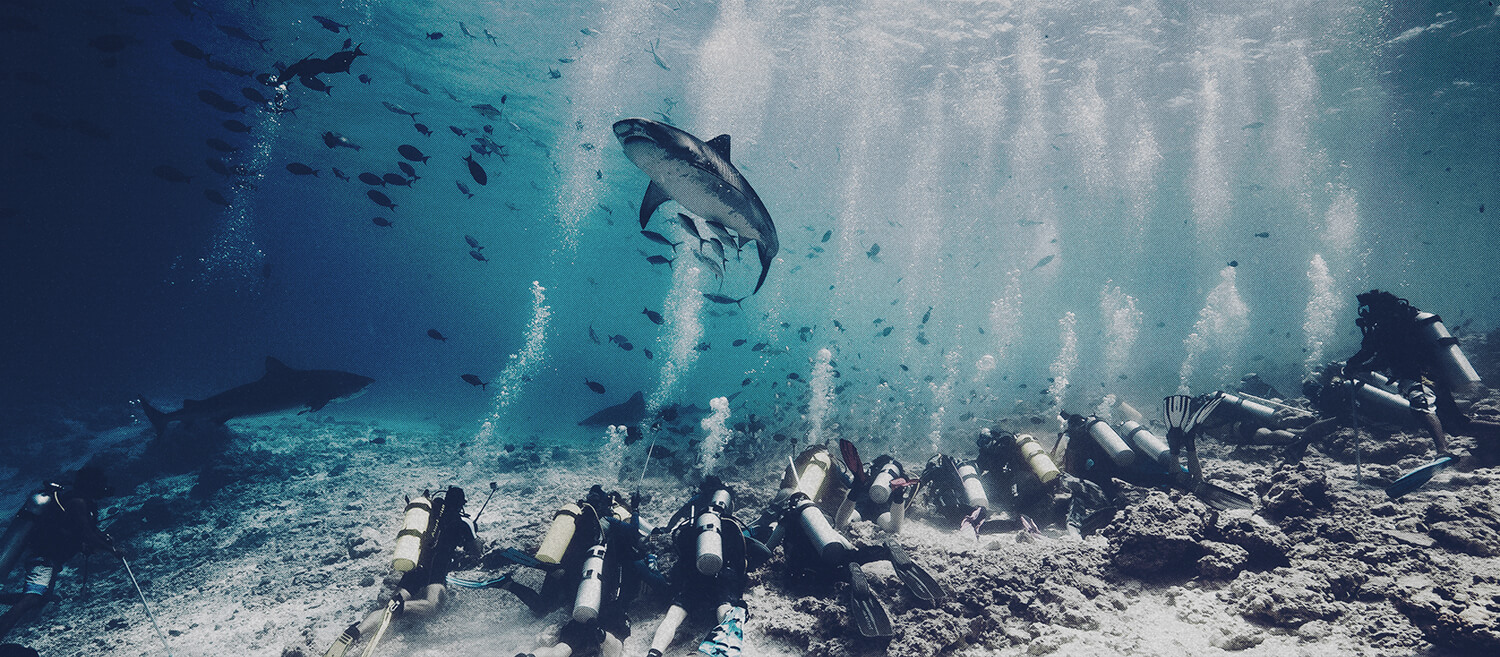
How I got into shark diving
I started out working in the Maldives resorts in housekeeping. After a few years, I realised I wanted to work for myself and moved back to my home island of Fuvahmulah. I’ve always loved the ocean and loved sharks. I know sharks don’t want to hurt humans. Whenever I saw sharks diving, I wanted to get closer. I never feared sharks.
My home island has many whale sharks and I grew up hearing stories about them. I couldn’t believe my eyes when I first saw one back in 2009. Ever since, I’ve wanted to spend more time with them. I was one of the first people to offer tiger shark diving in Fuvahmulah. Now, nine years later, I take people to experience sharks underwater every day.
“BECAUSE DHONI ARE MUCH BIGGER AND SLOWER, THE SHARKS CAN EASILY AVOID THEM.”
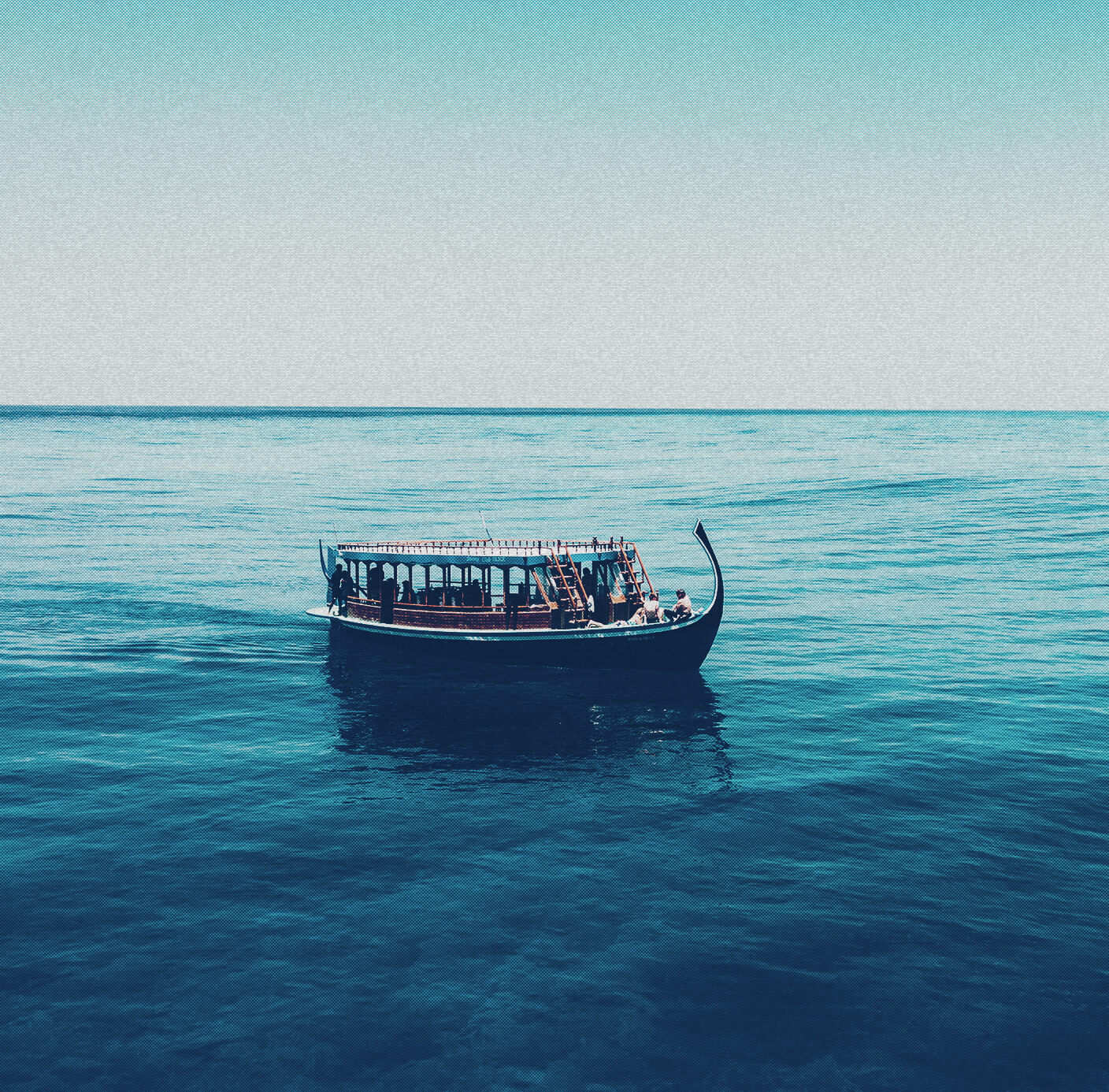
Some tips for whale shark safety
When you go to see whale sharks, go with operators who use traditional local dhoni boats, not speed boats. Dhoni are much bigger and slower, so the sharks can easily avoid them. Use as little plastic as possible and dispose of it the right way! Eat seafood less often and make sure it was caught ethically, or without using harmful nets. Most of the plastic in the ocean is made out of fishing nets.
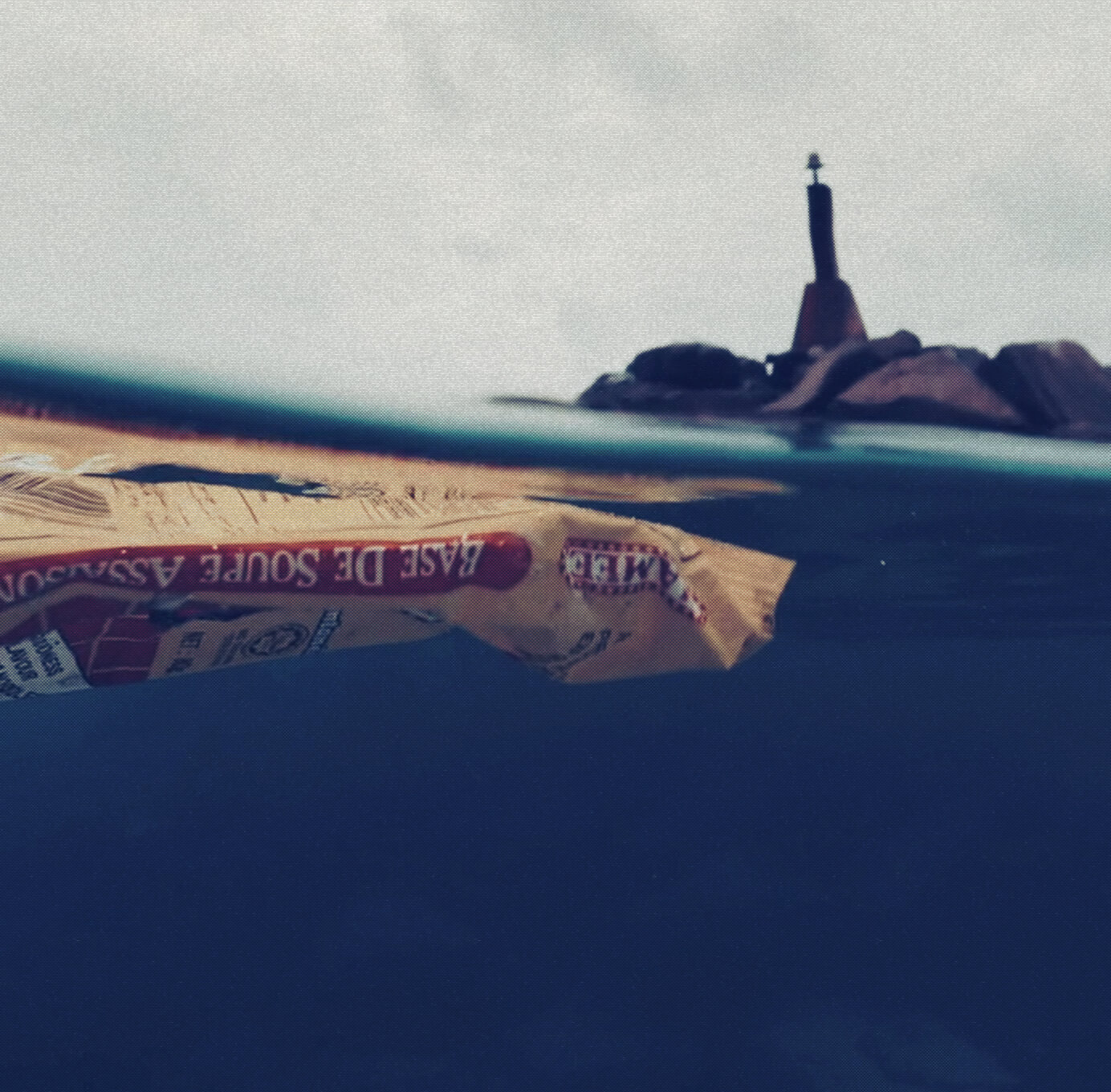
Jono and I set up the Fuvahmulah Marine Foundation [FMF] to help protect Fuvahmulah’s marine environment. We work with the local community to help raise awareness on the impact of plastic in our oceans, and to promote sustainable tourism. We want the marine environment and tourism to thrive together.
“WE USE SOCIAL MEDIA TO BRING ATTENTION TO WHALE SHARK VESSEL STRIKES.” “WE USE SOCIAL MEDIA TO BRING ATTENTION TO WHALE SHARK VESSEL STRIKES.”
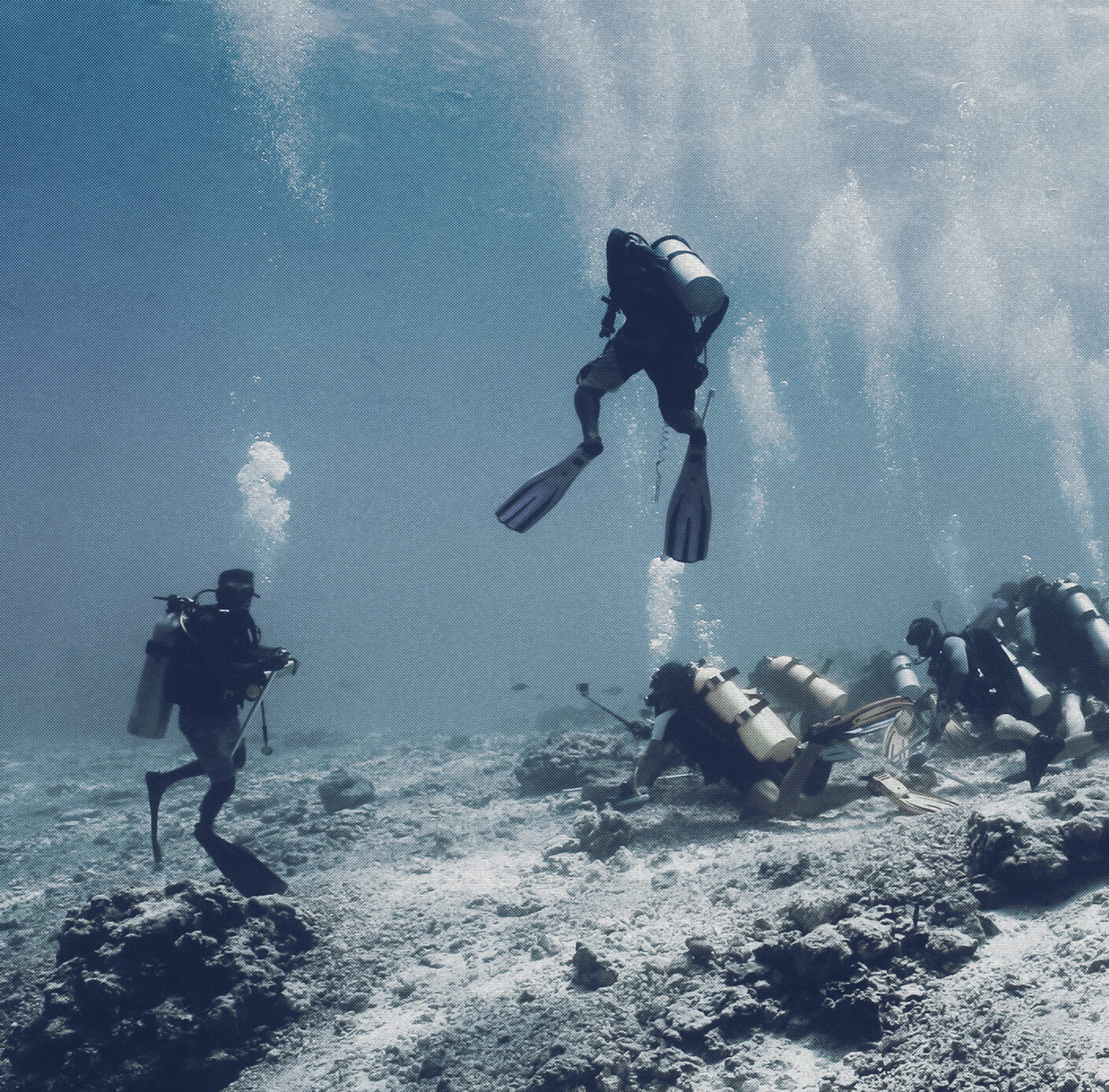
Promoting sustainable shark diving
Jono and I use numerous approaches to advocate safer whale shark practices. We take tourists shark diving every day; that’s an opportunity to raise the awareness of guests from around the world about sustainable and safe shark diving protocols. We also use our social media platforms to bring attention to whale shark vessel strikes or tourists being hit by speeding vessels while swimming with sharks. We advocate for all tourists to the Maldives to use only sustainable whale shark encounter operators.
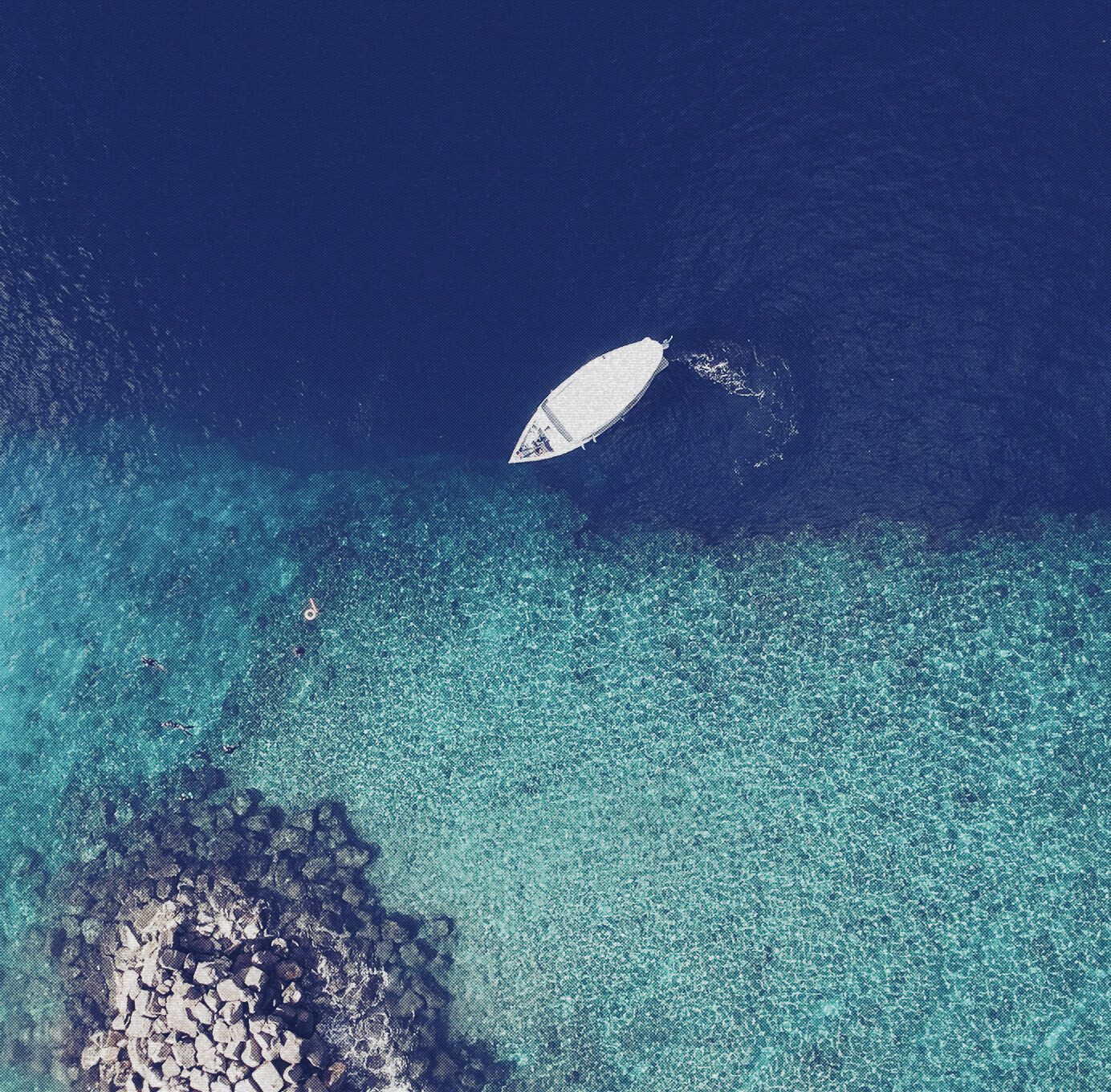
I try to educate the local Maldivian community, from fishermen to politicians, about ethical shark practices. I’m advocating when I’m interviewed in the local newspapers or featured on Maldives national television networks. We regularly direct people to the Maldives Whale Shark Research Programme for further information and actively contribute to their nationwide whale shark identification database.
“MY NATION WILL BE ONE OF THE FIRST TO BE DESTROYED BY CLIMATE CHANGE.” “MY NATION WILL BE ONE OF THE FIRST TO BE DESTROYED BY CLIMATE CHANGE.”
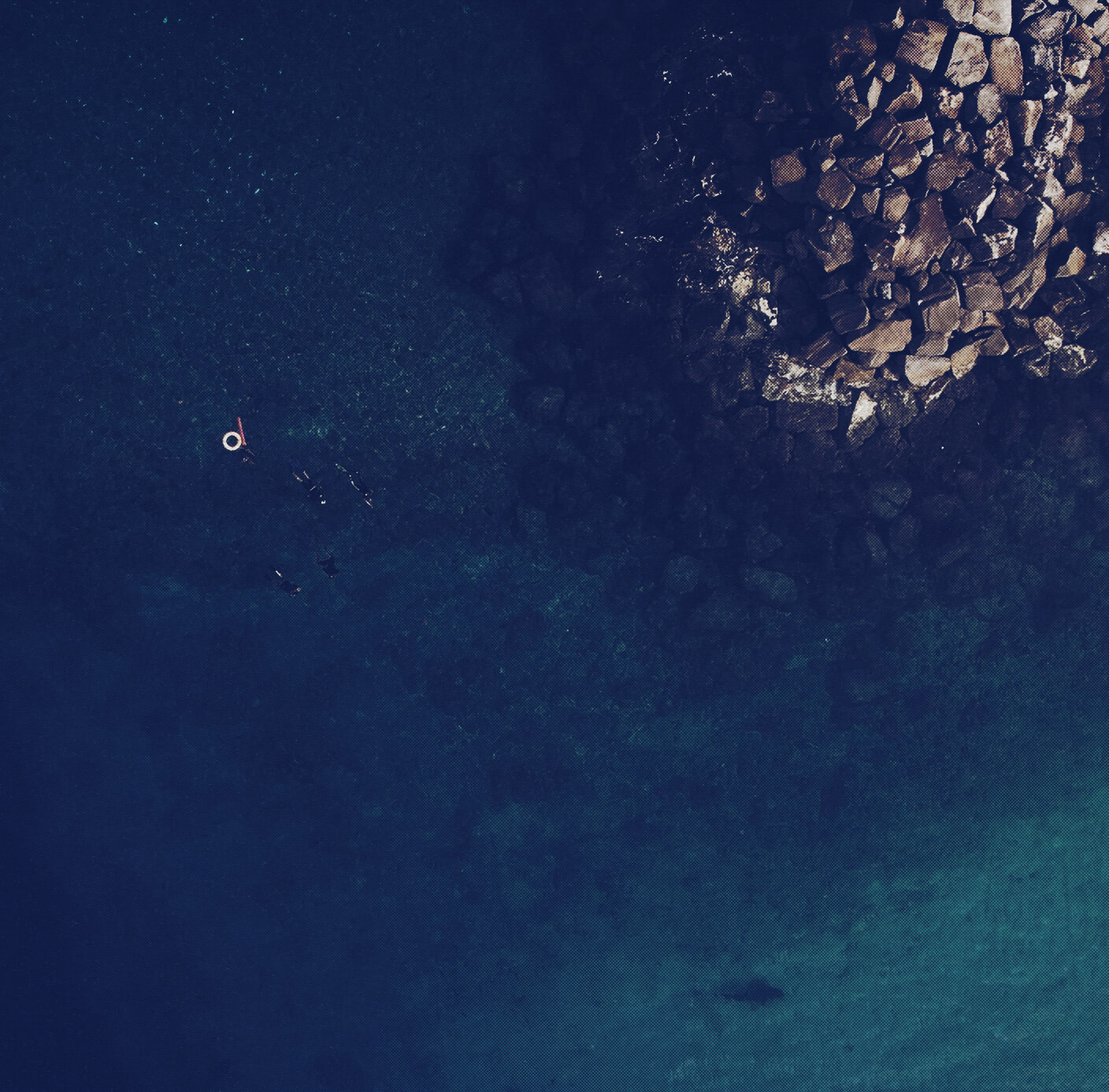
The Maldives and climate change
Climate change is disturbing the natural weather patterns and the ocean currents marine life depends on. Our changing those patterns risks disrupting marine life’s food sources and forcing them to leave the Maldives to search for food. The change in water temperature is also a concern. If water temperatures rise much more, our corals’ health will be at risk.
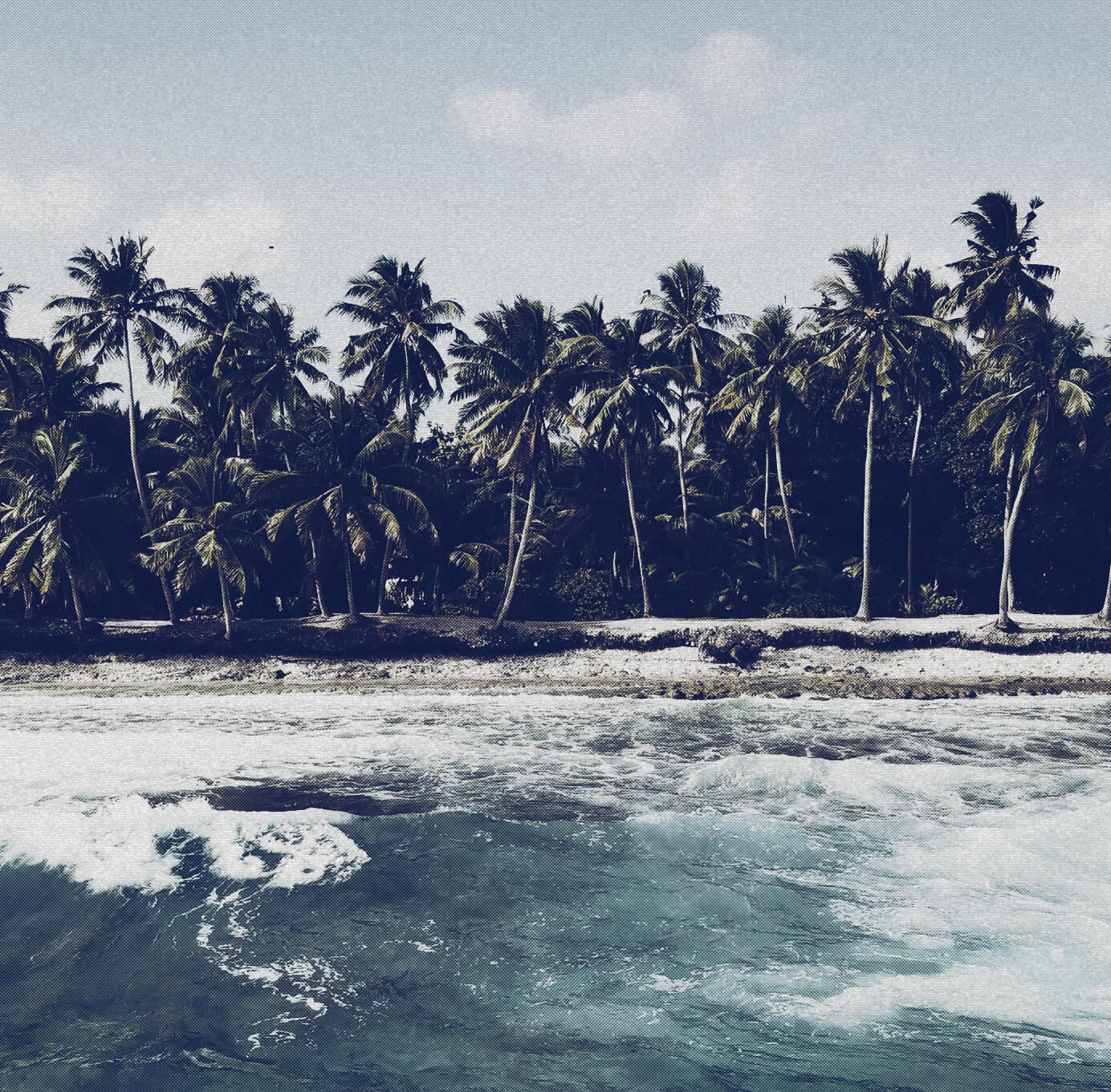
My nation will be one of the first to be destroyed by climate change. The highest point is only 2.5m high, so as sea levels rise, we’ll lose most, if not all, of our islands. We must stop putting carbon in the atmosphere right away. My country provides millions of tourists with a wonderful island experience. If we don’t act now, we won’t have anywhere for the world to come and enjoy their holidays.
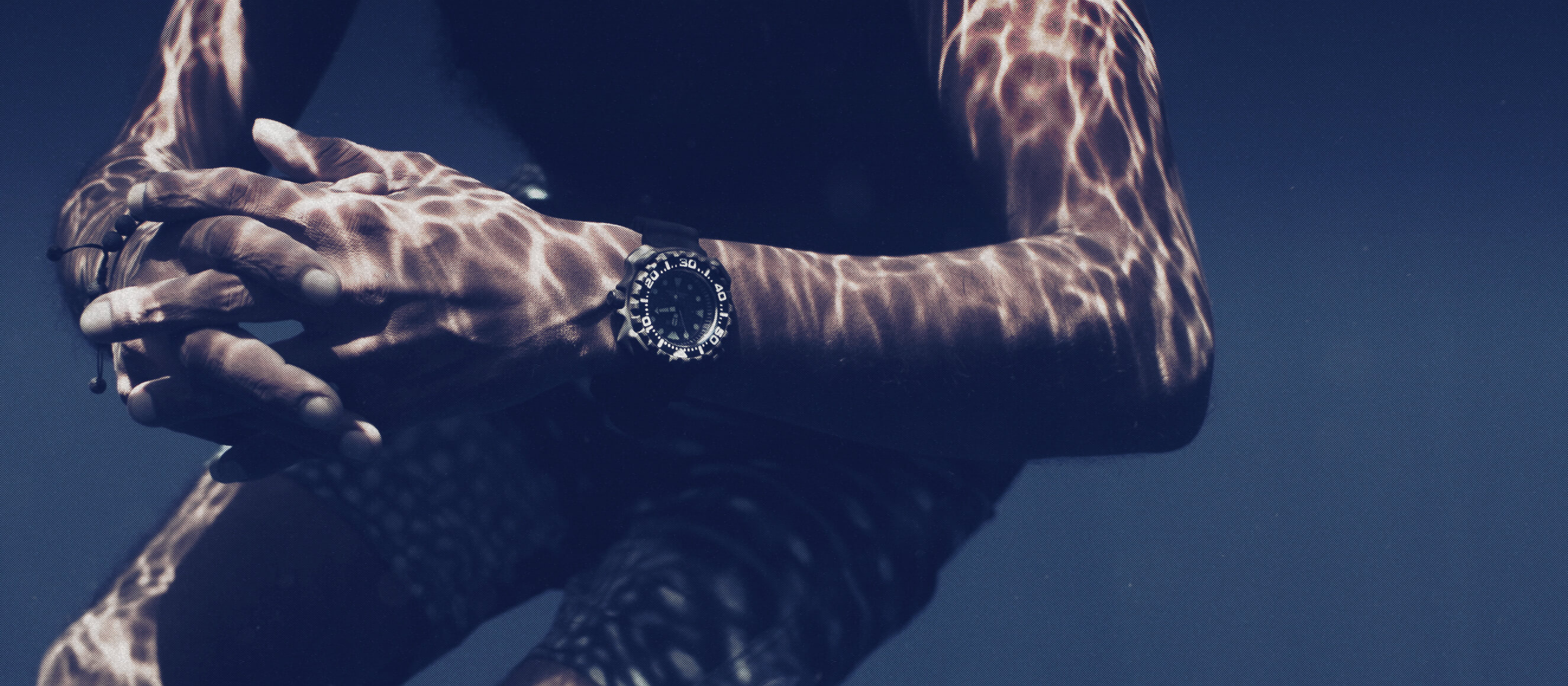
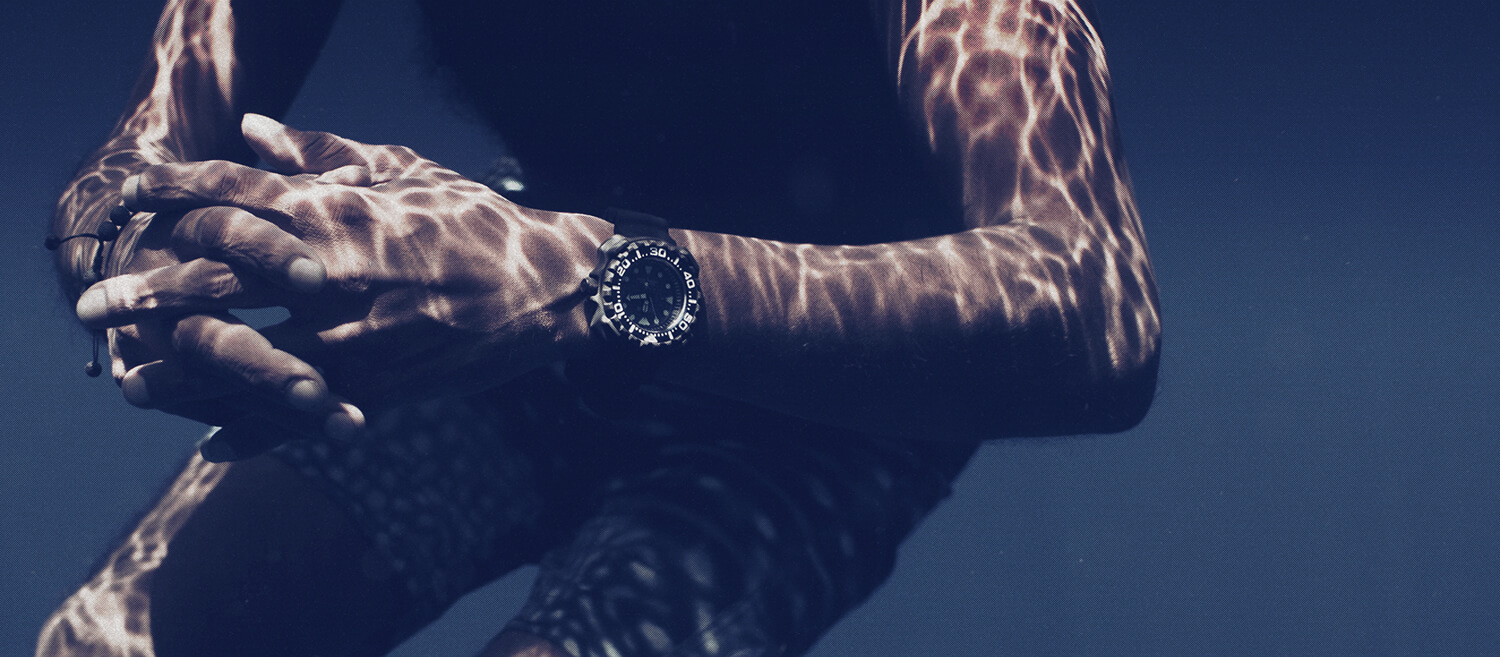
03
NEXT STORY
PRODUCT
NEW MODEL
Eco-Drive Diver 200m
BN0225-04L
SPECIAL LIMITED EDITION
OF
5,000 UNITS
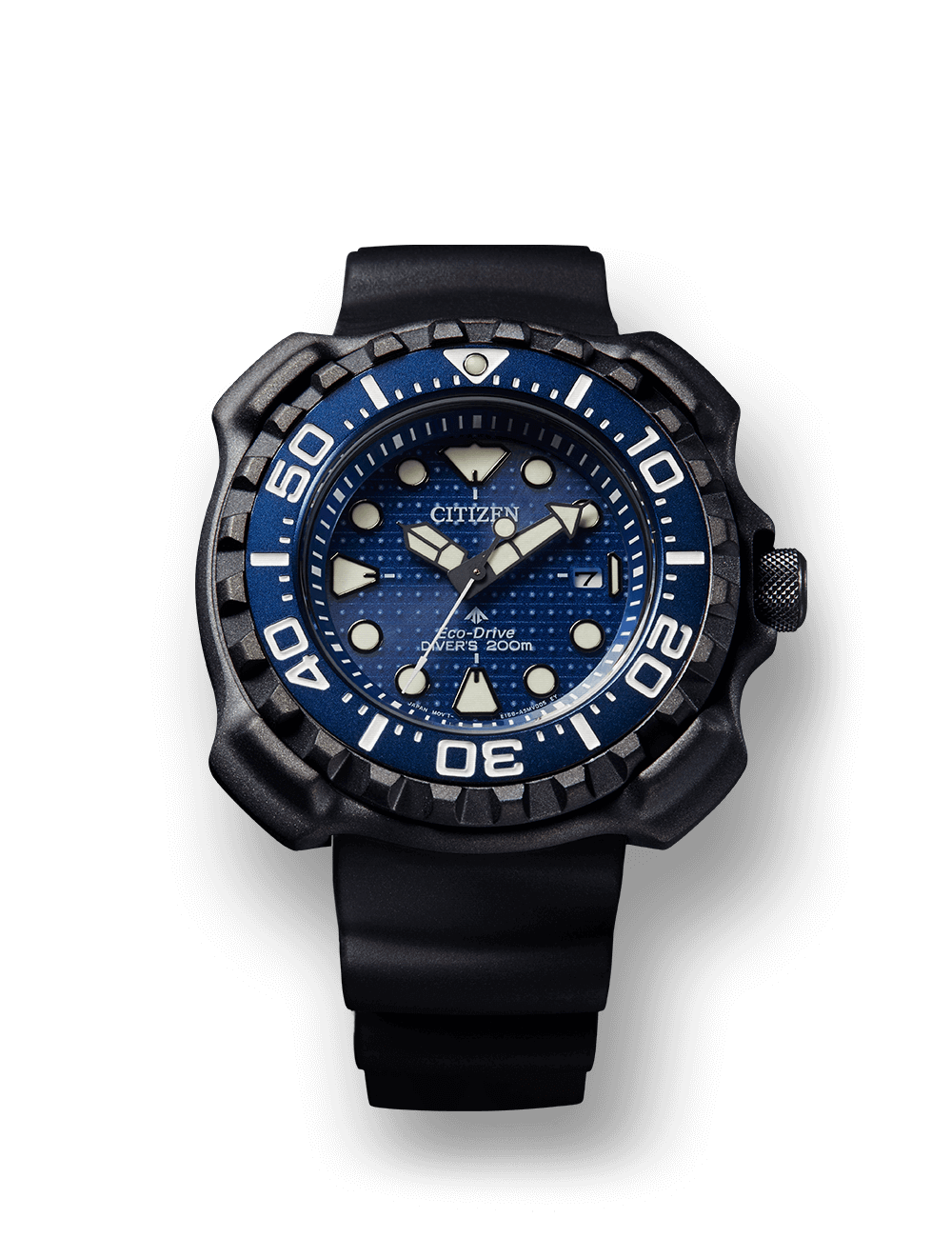
WHEN A SYMBOL MEETS A LEGEND

is not applicable to sales in China and Indonesia.
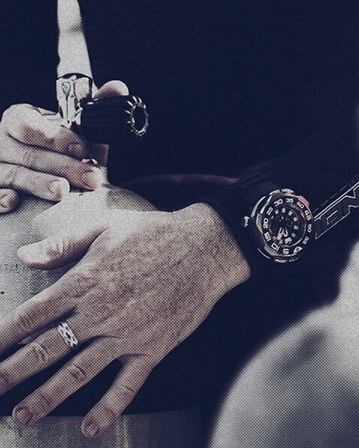
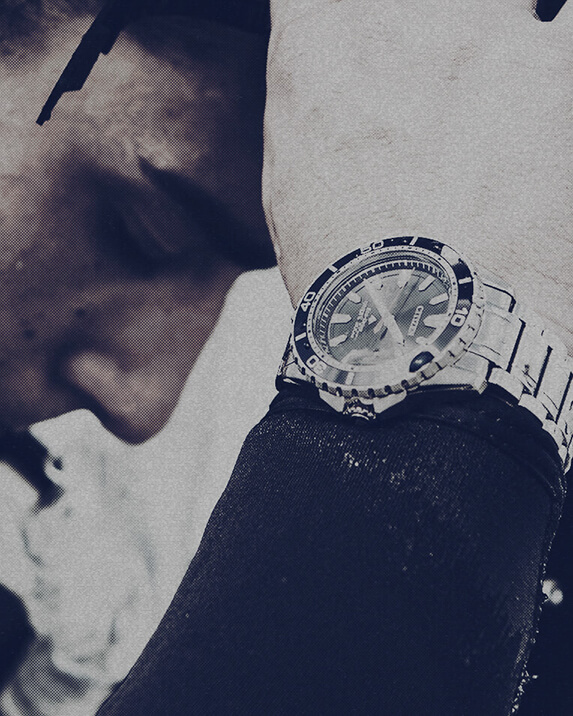
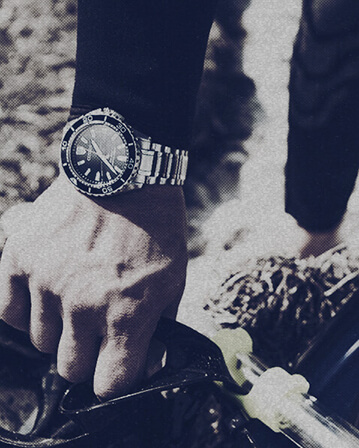
CITIZEN
PROMASTER BRAND SITE
05





